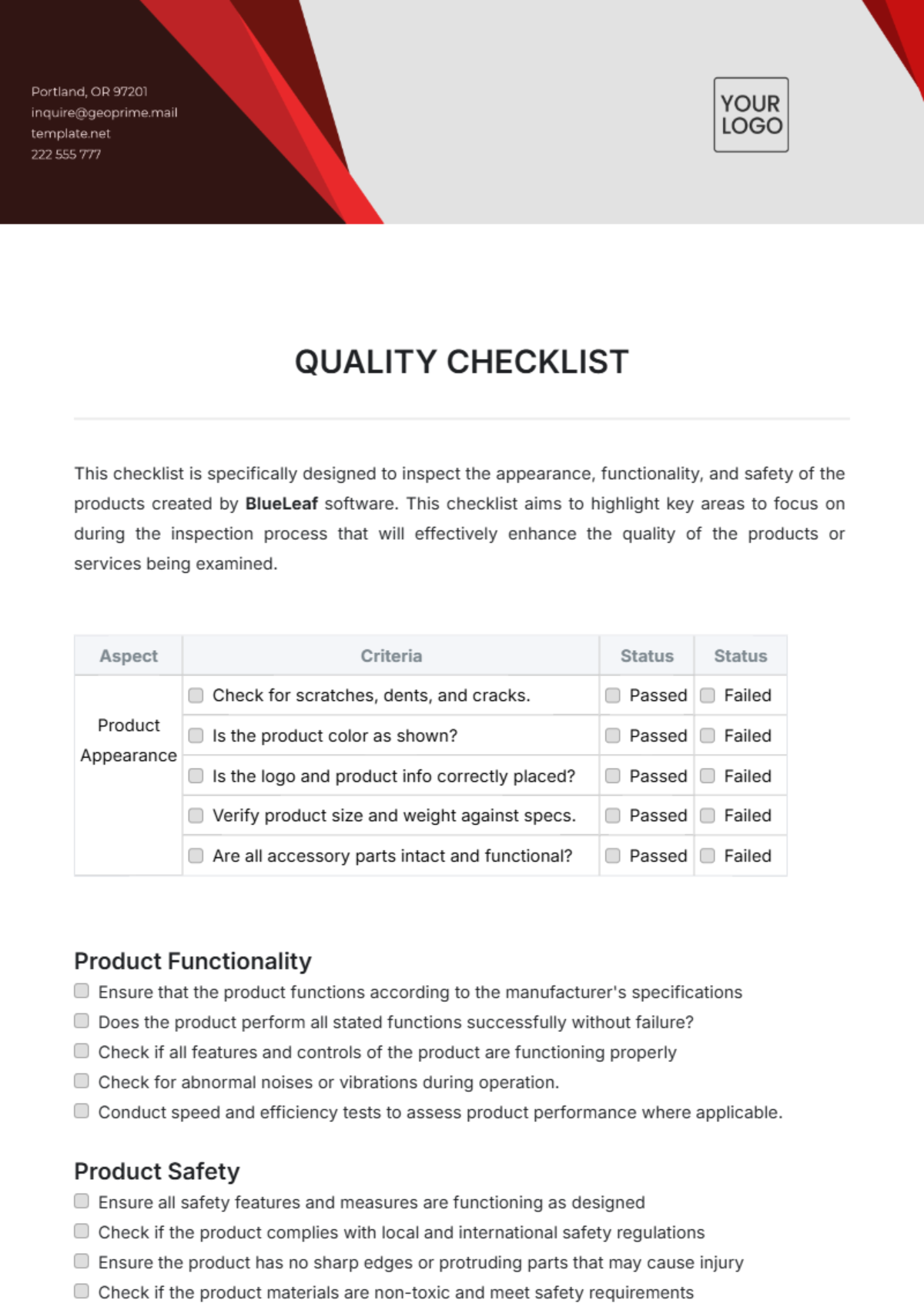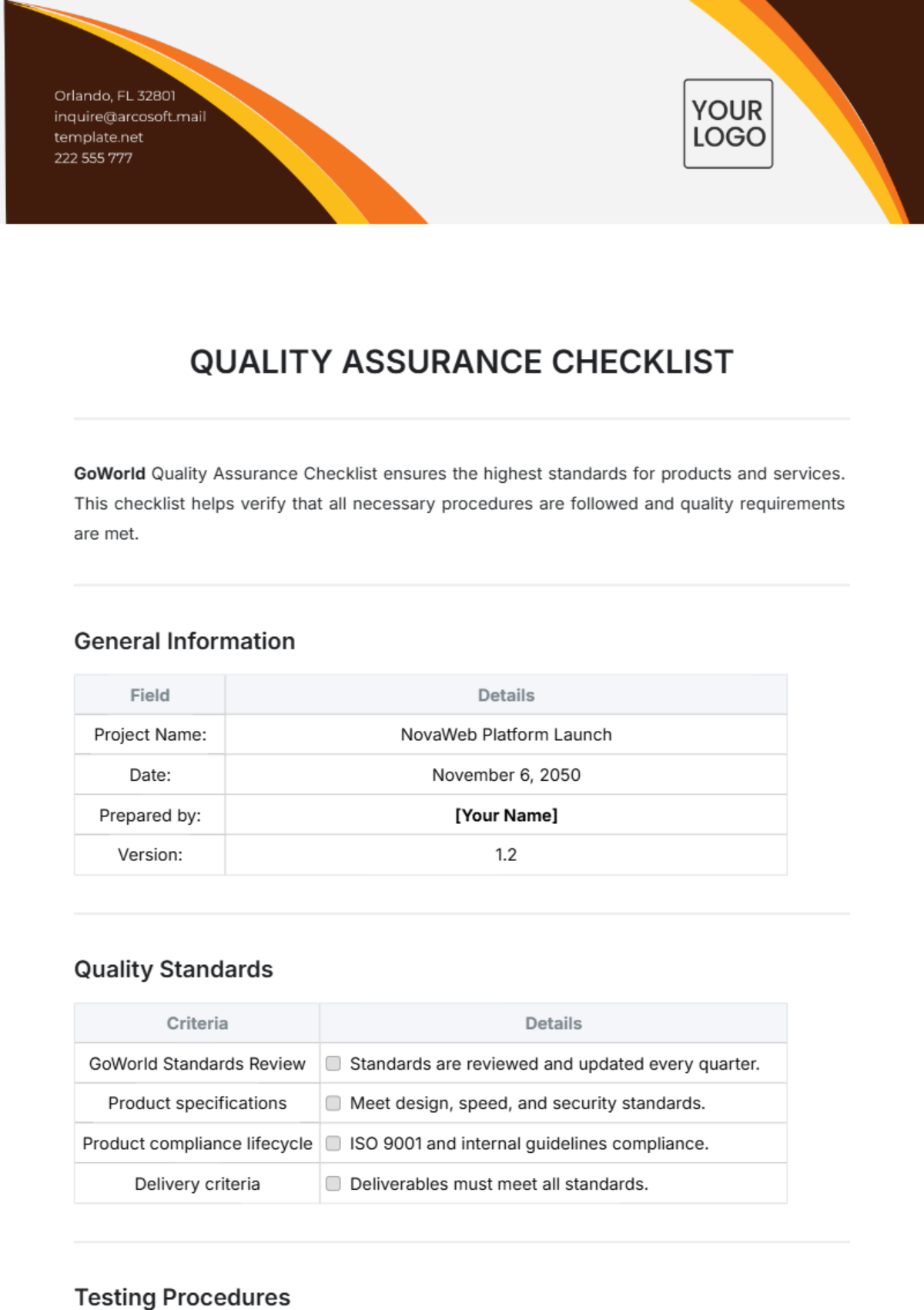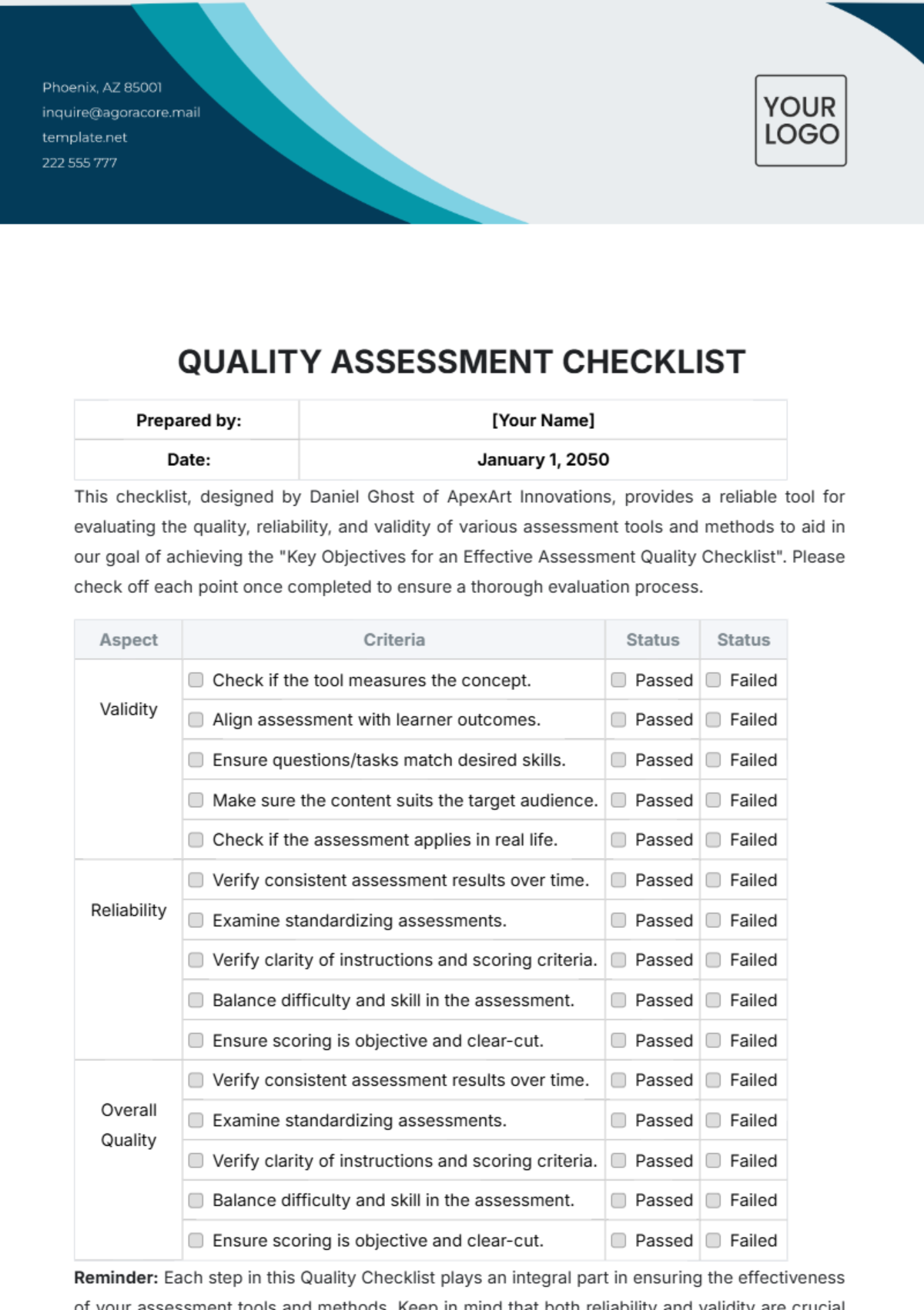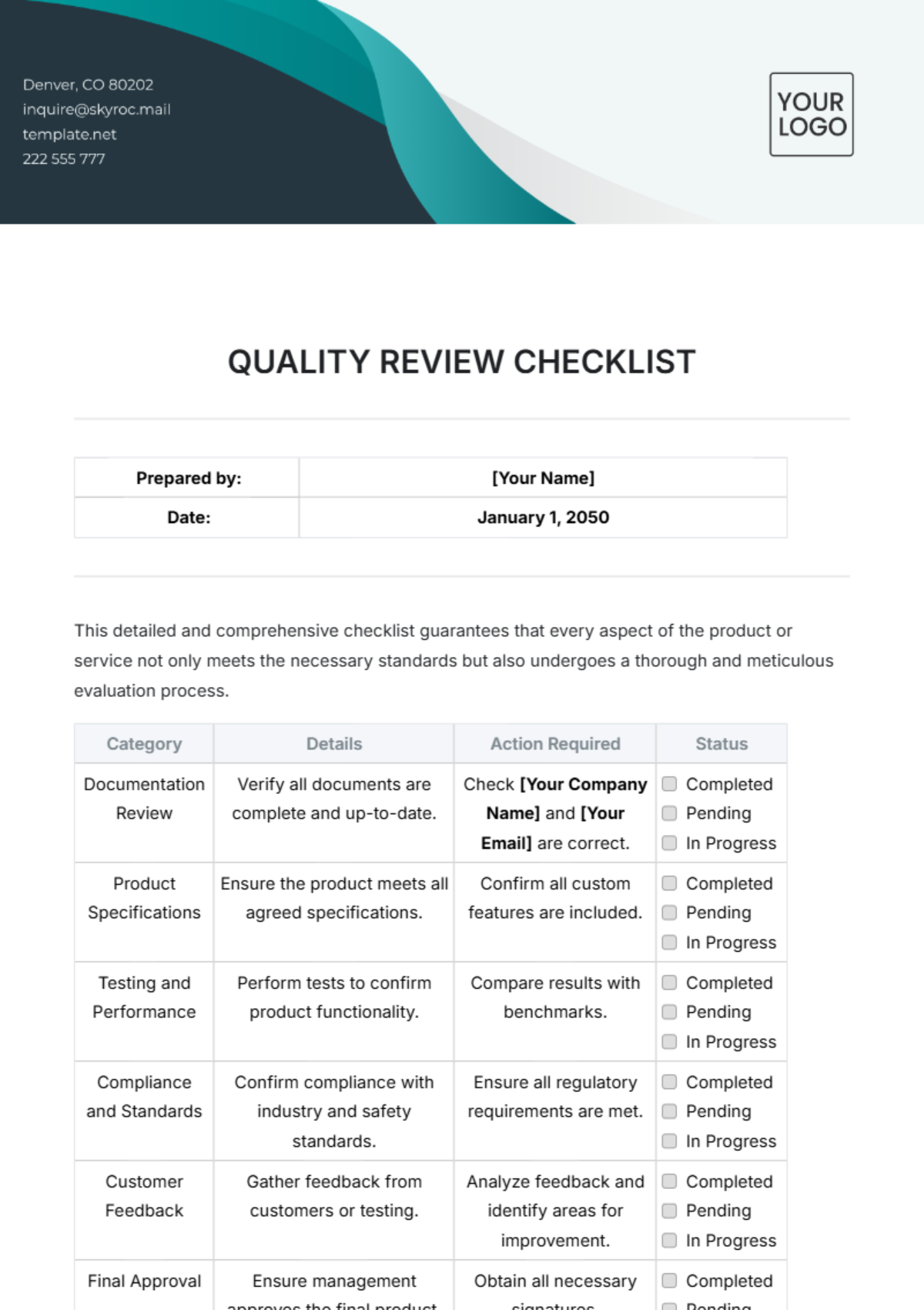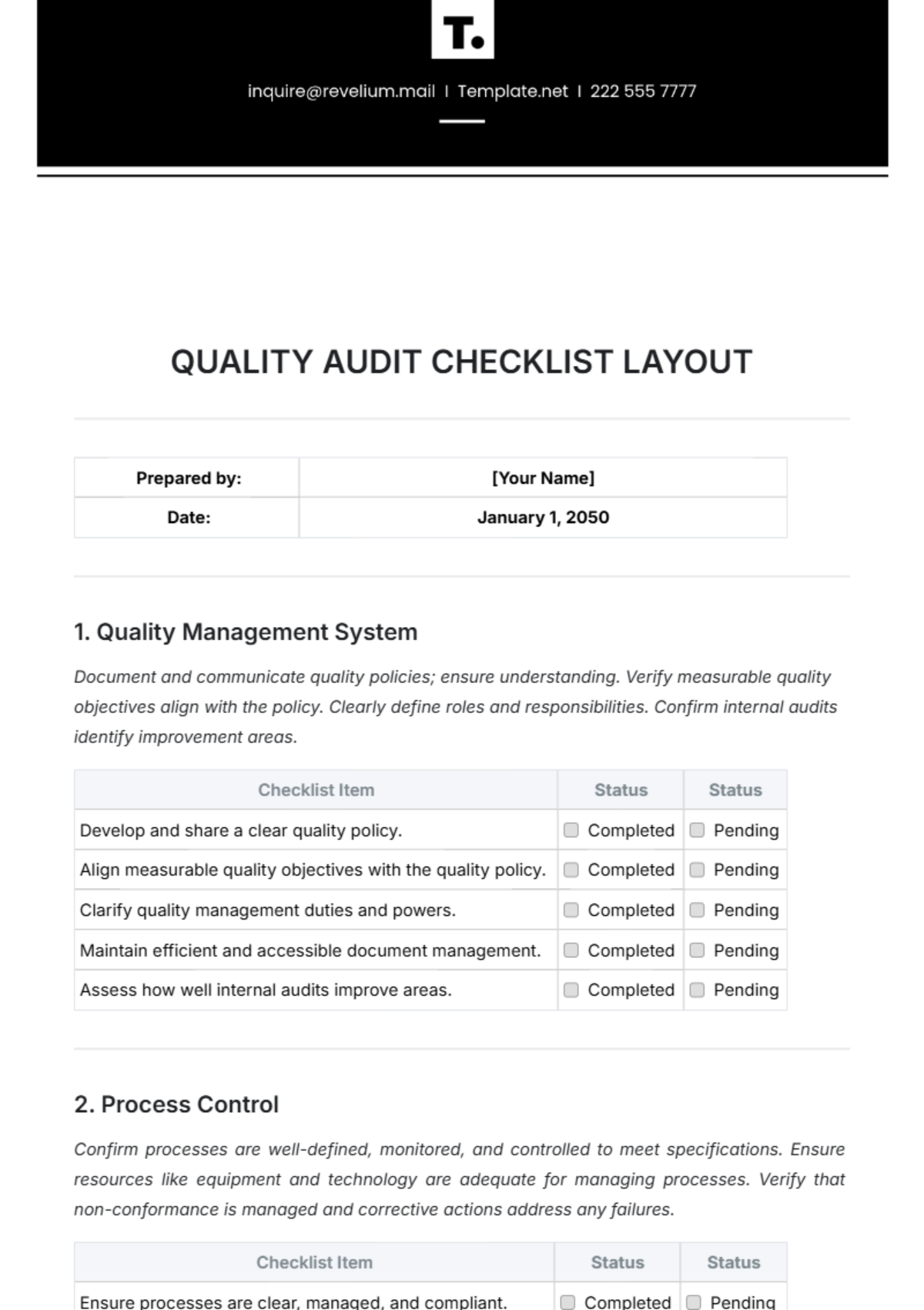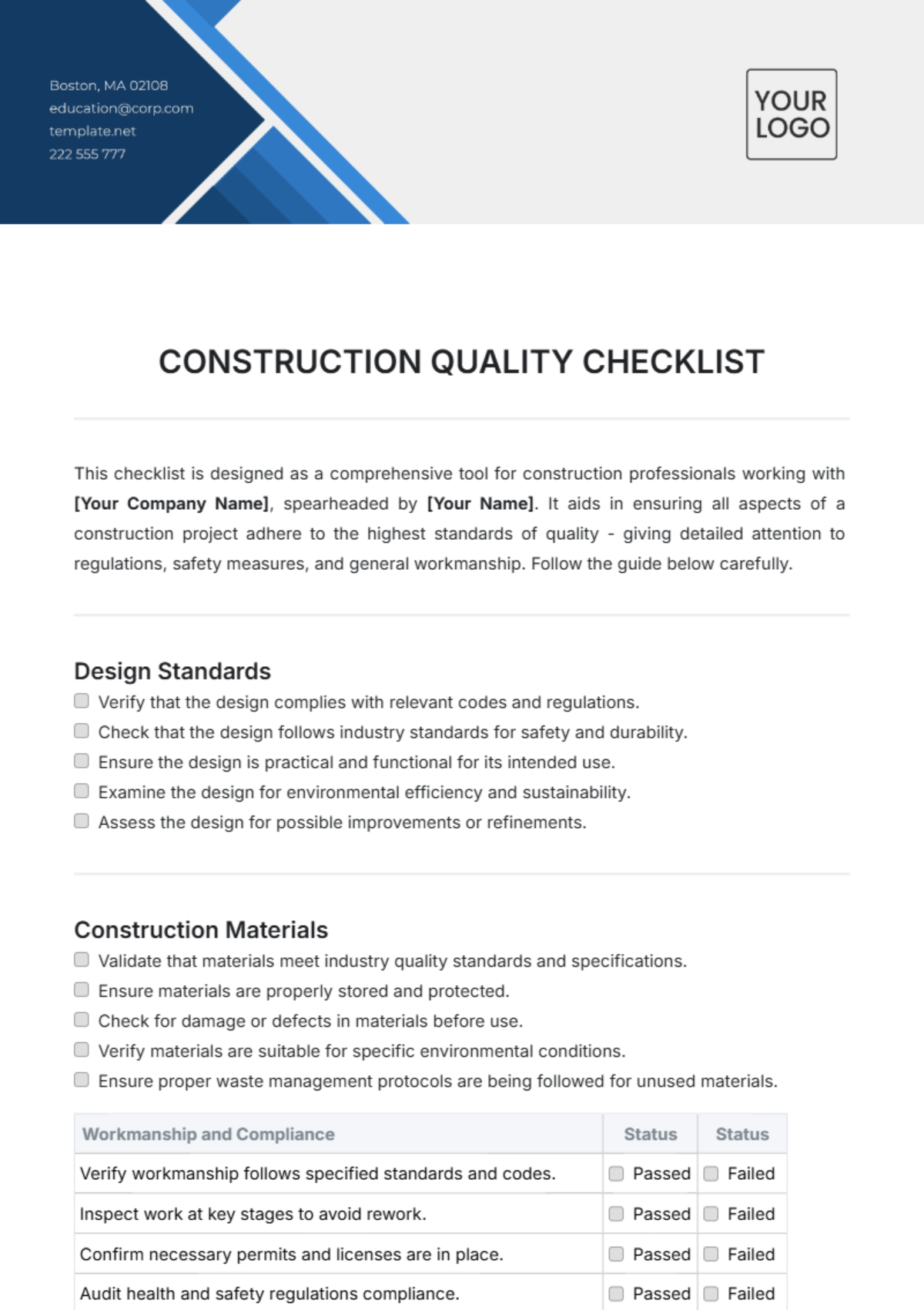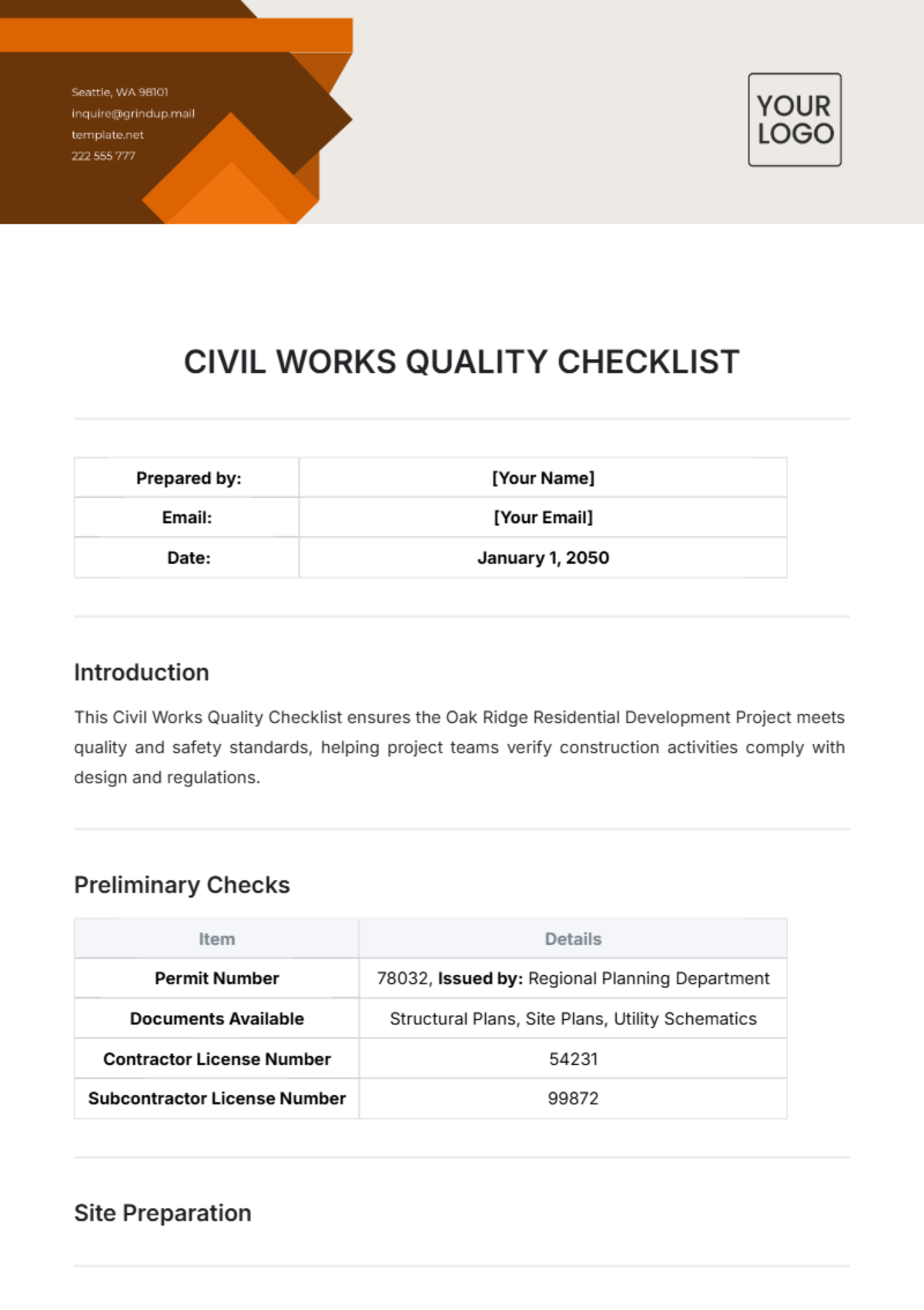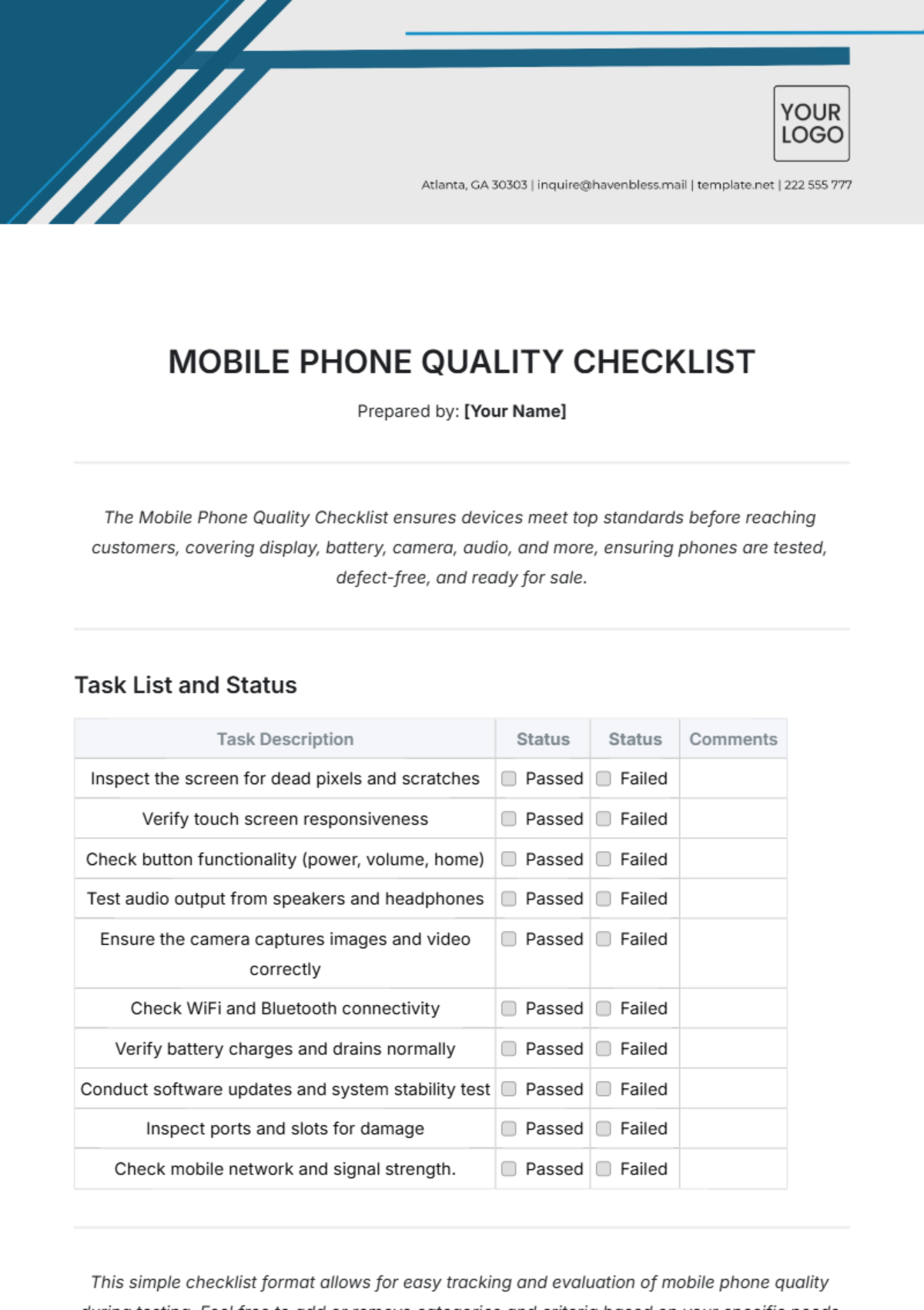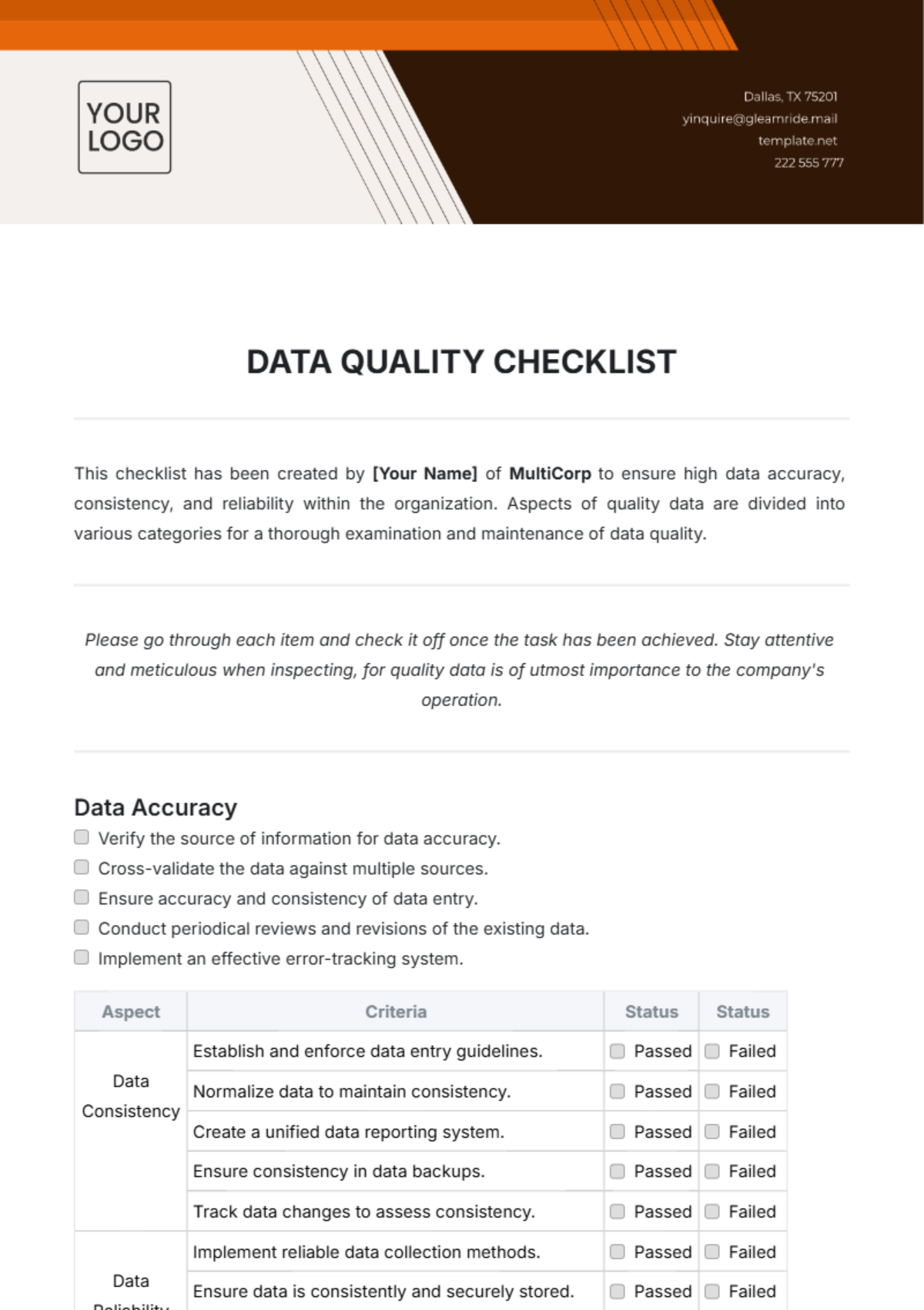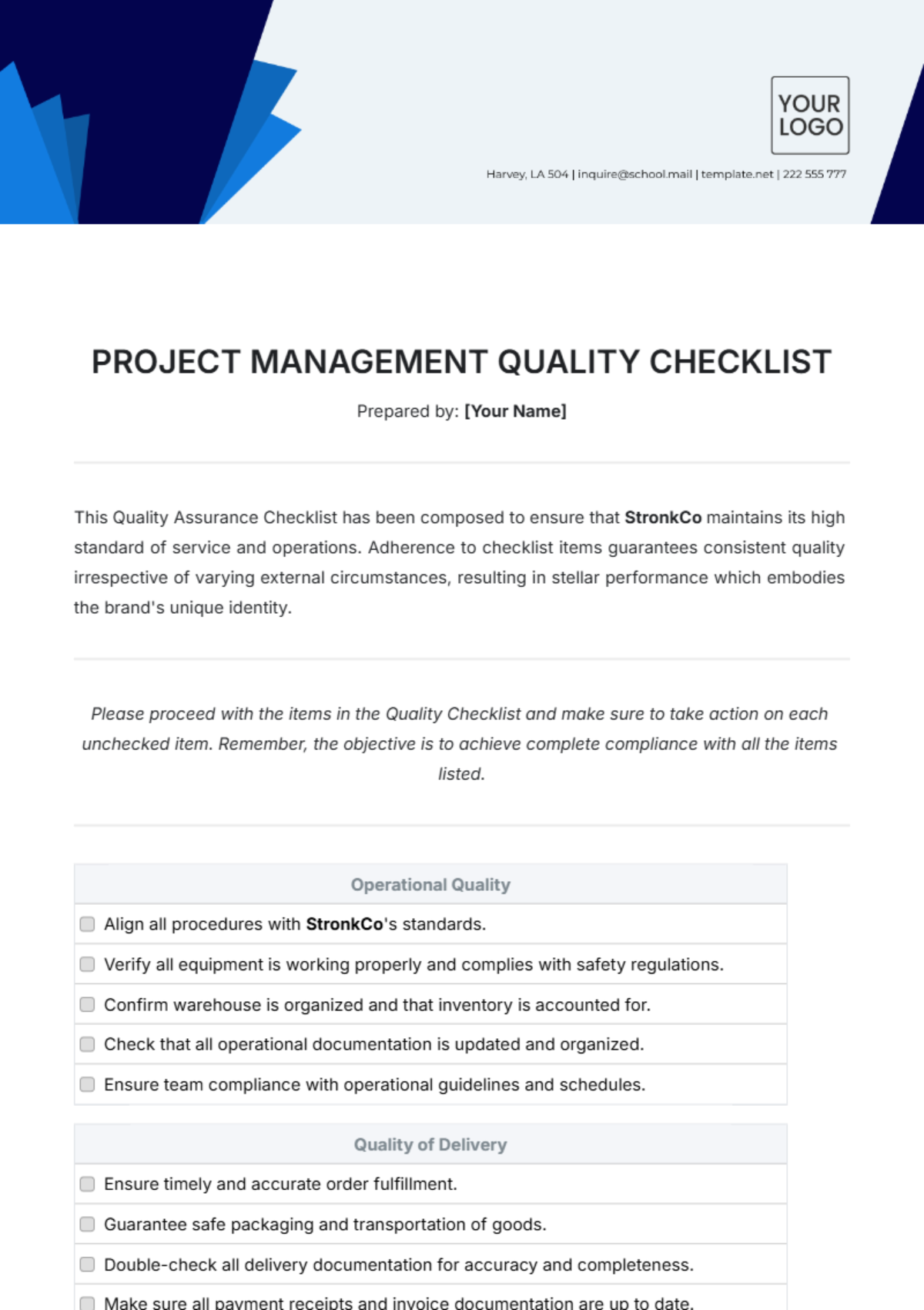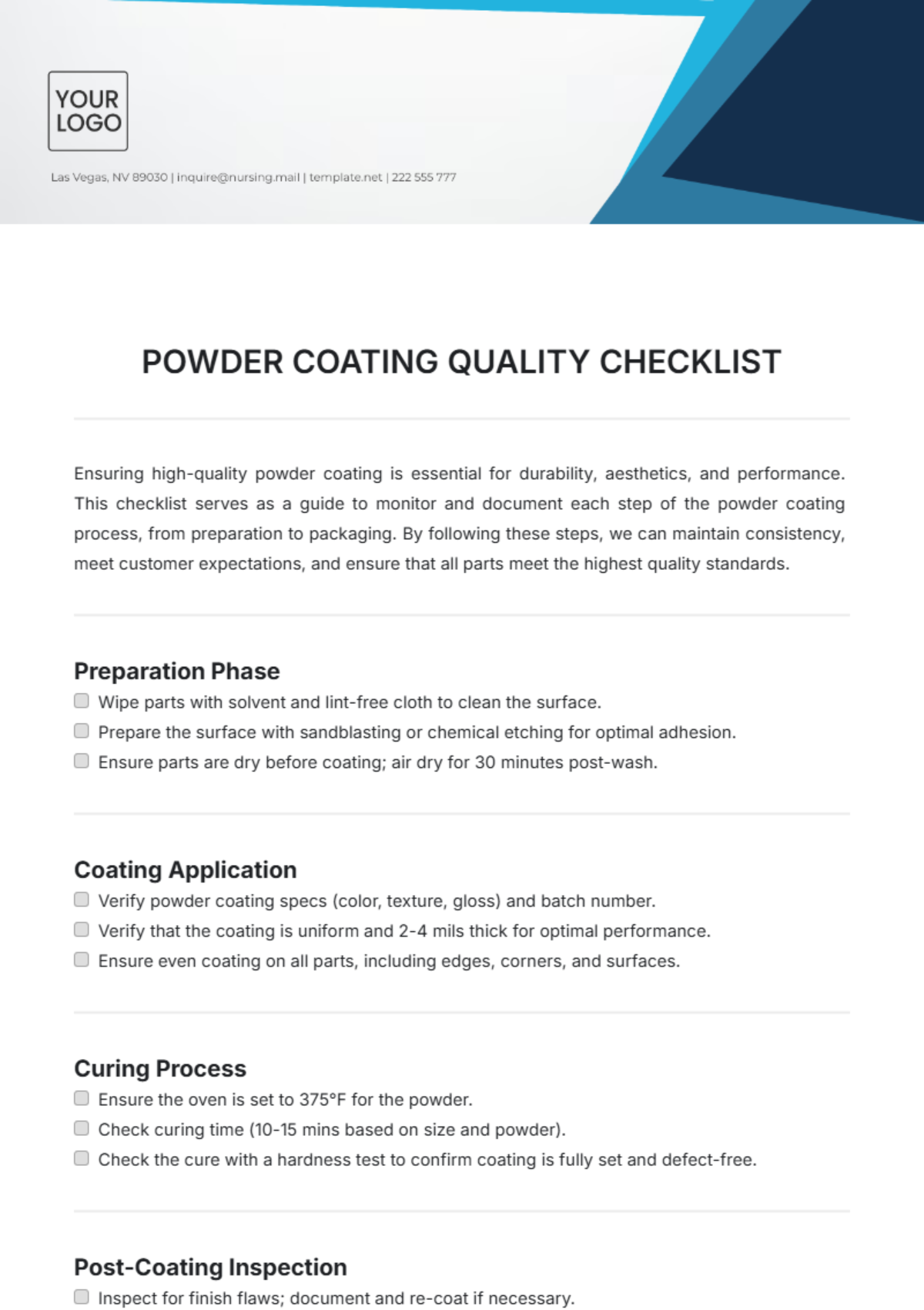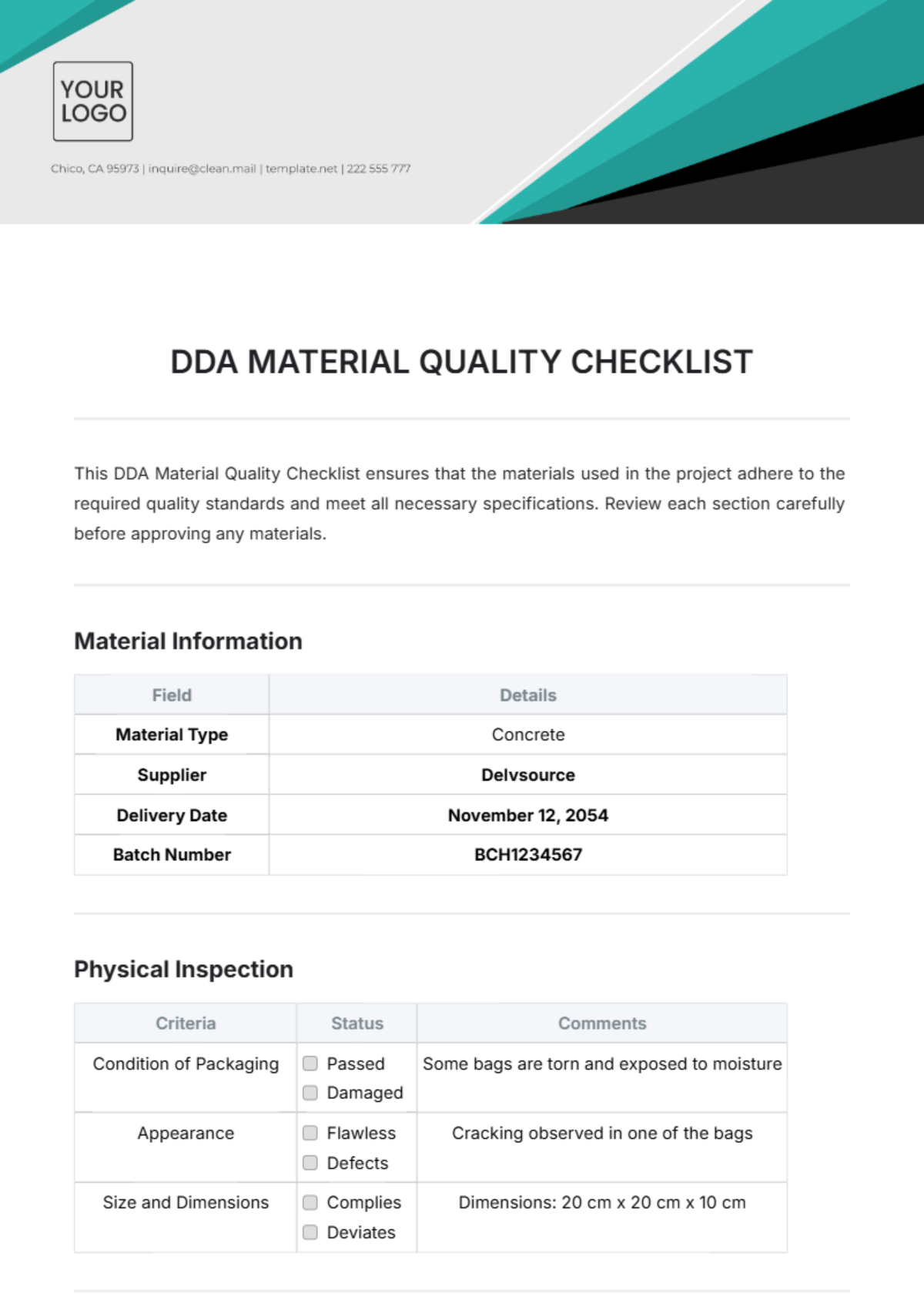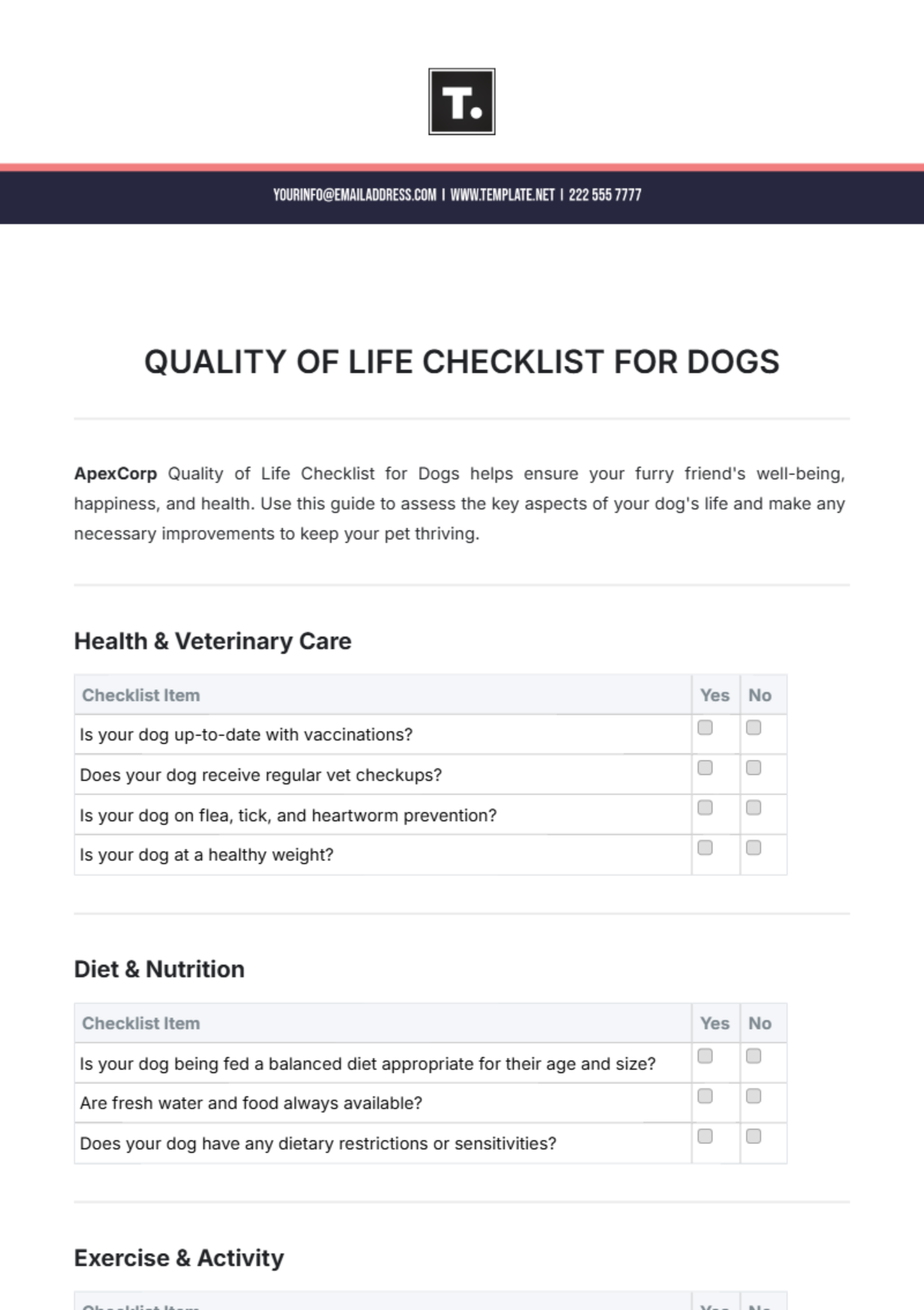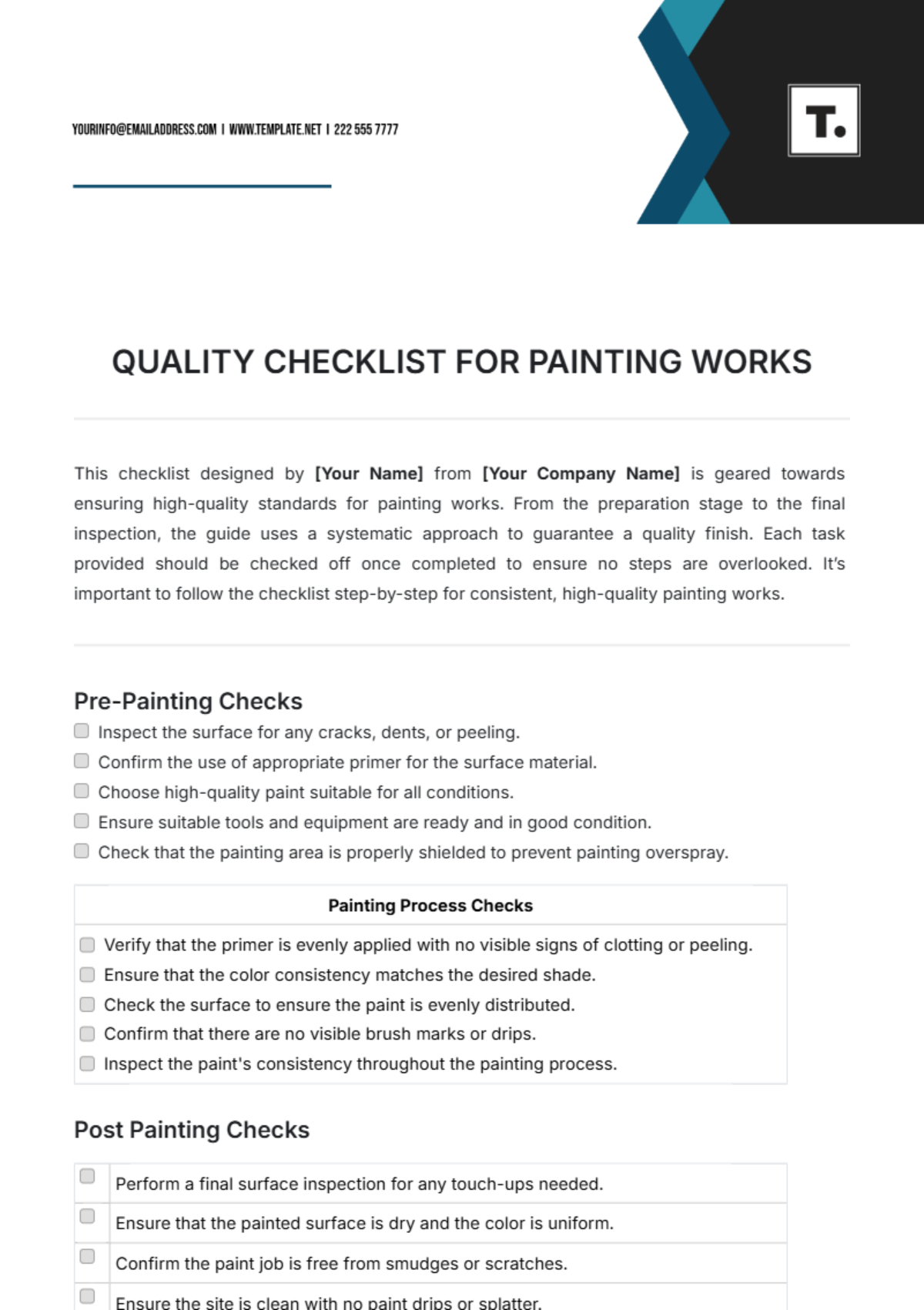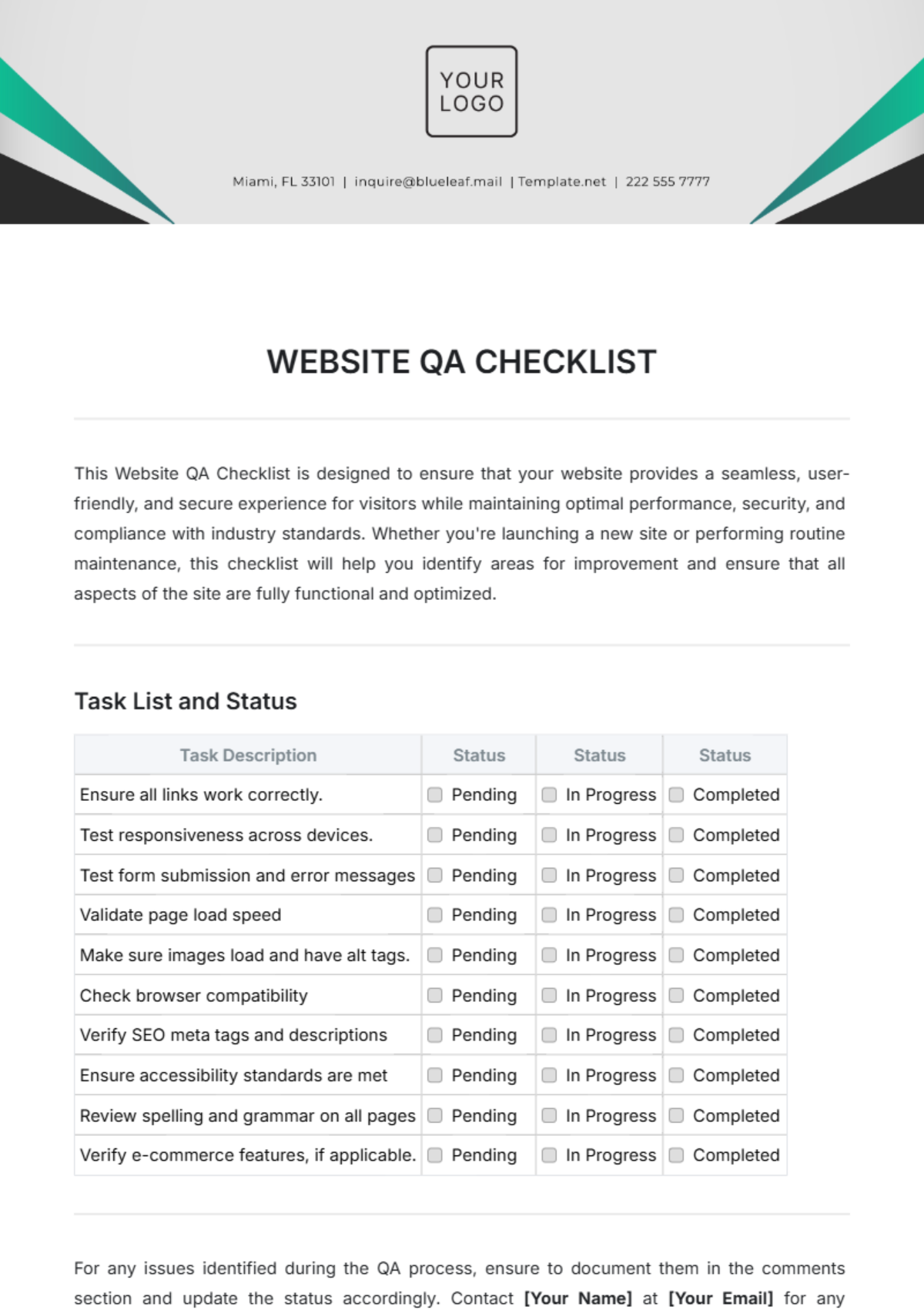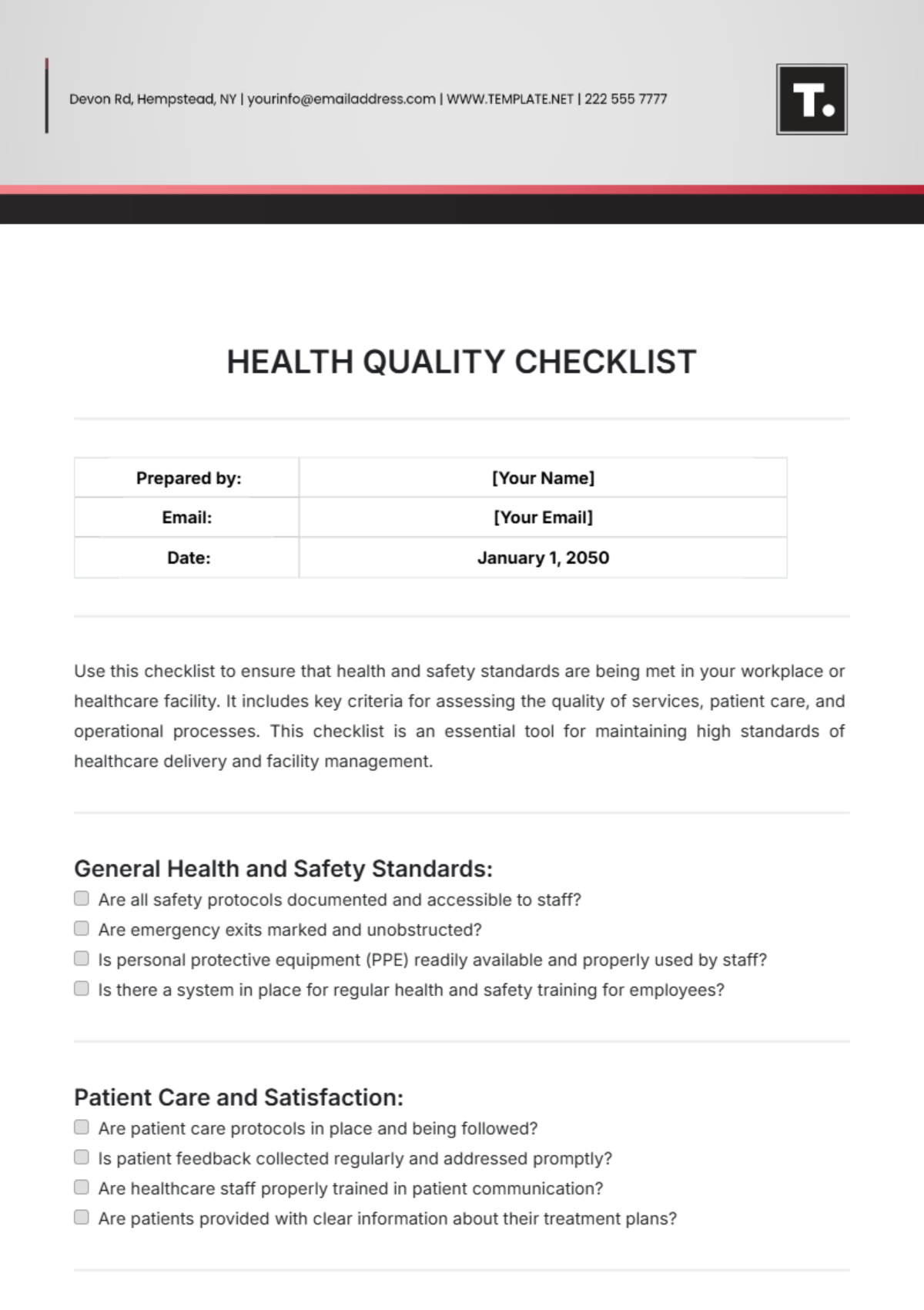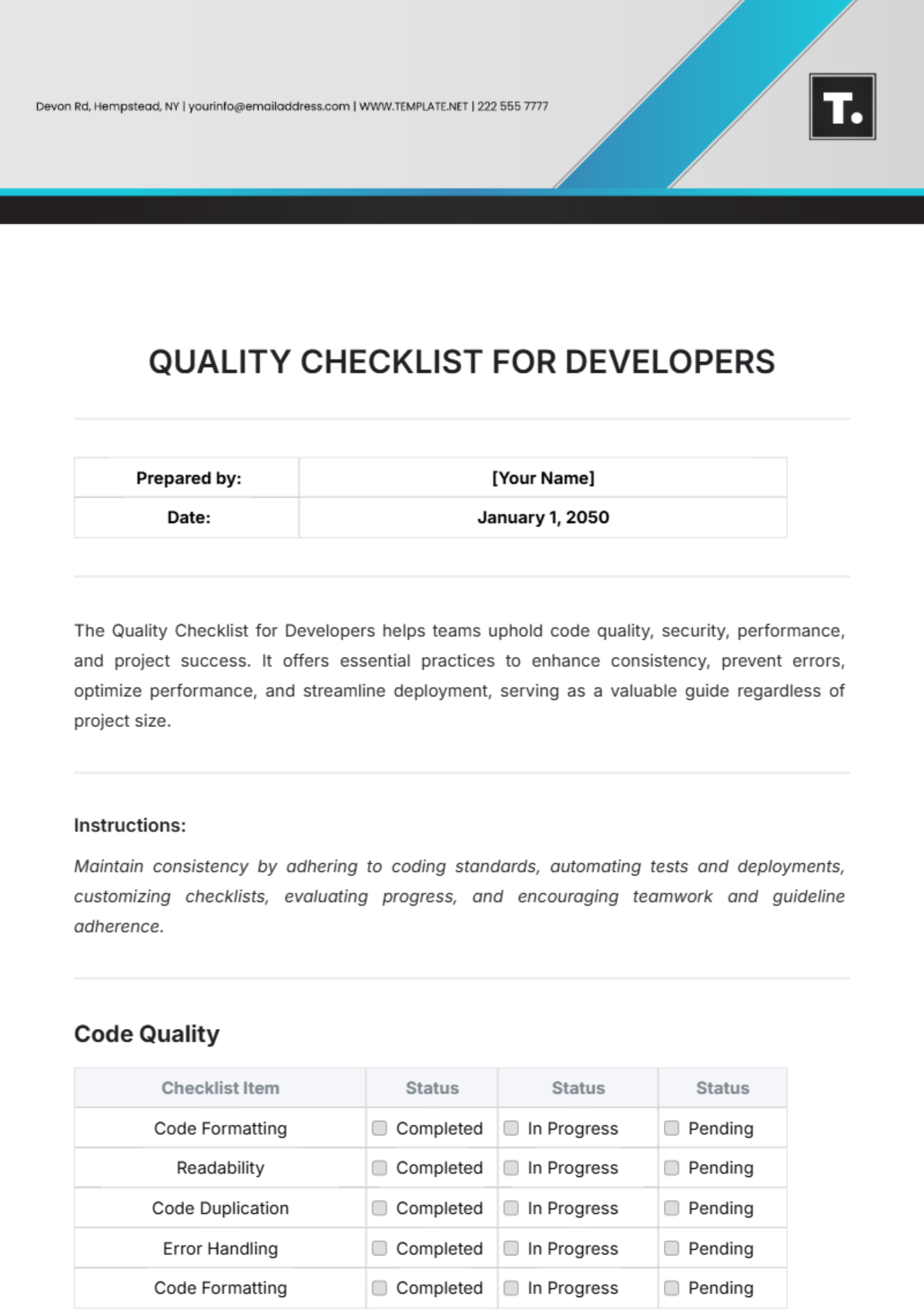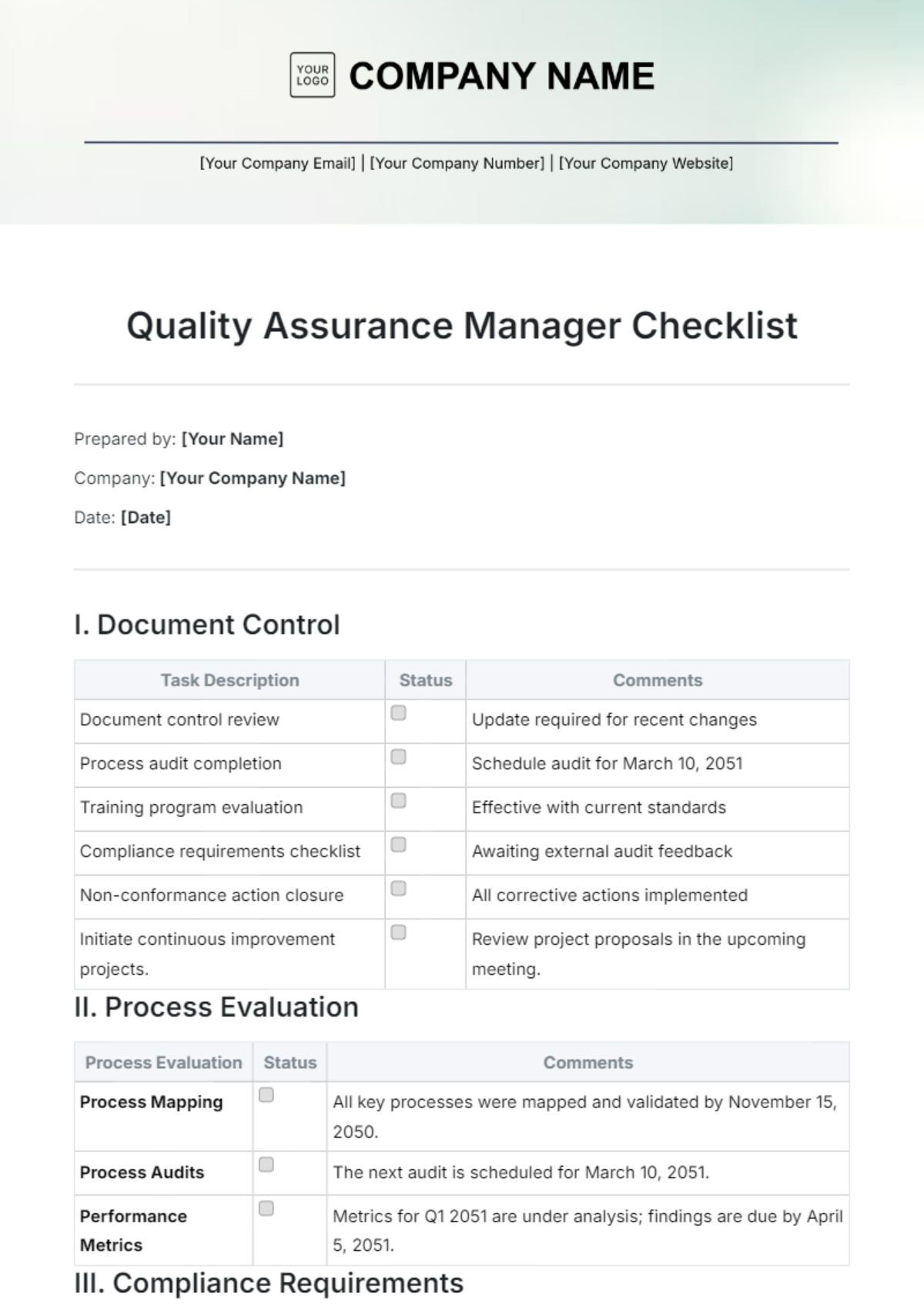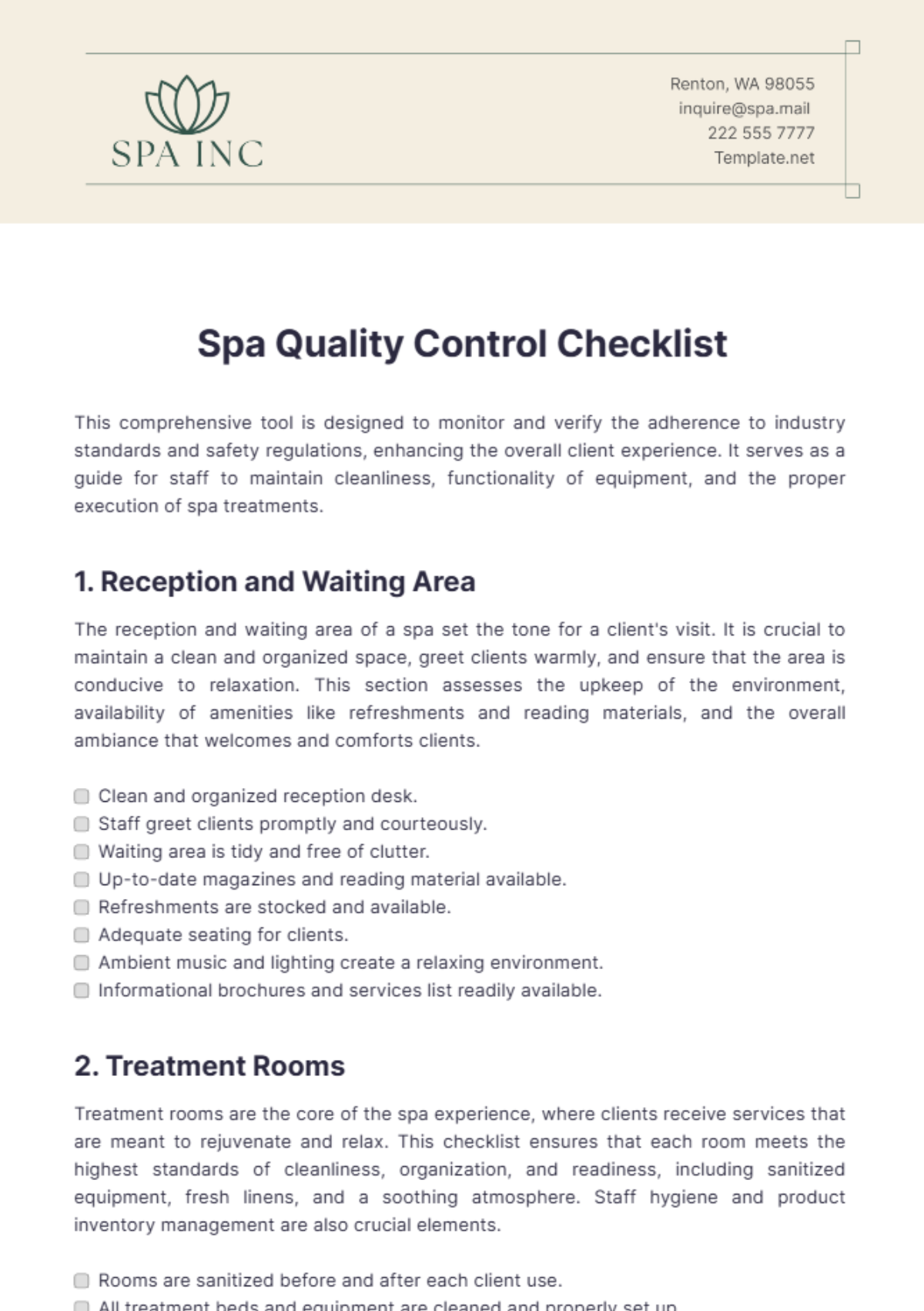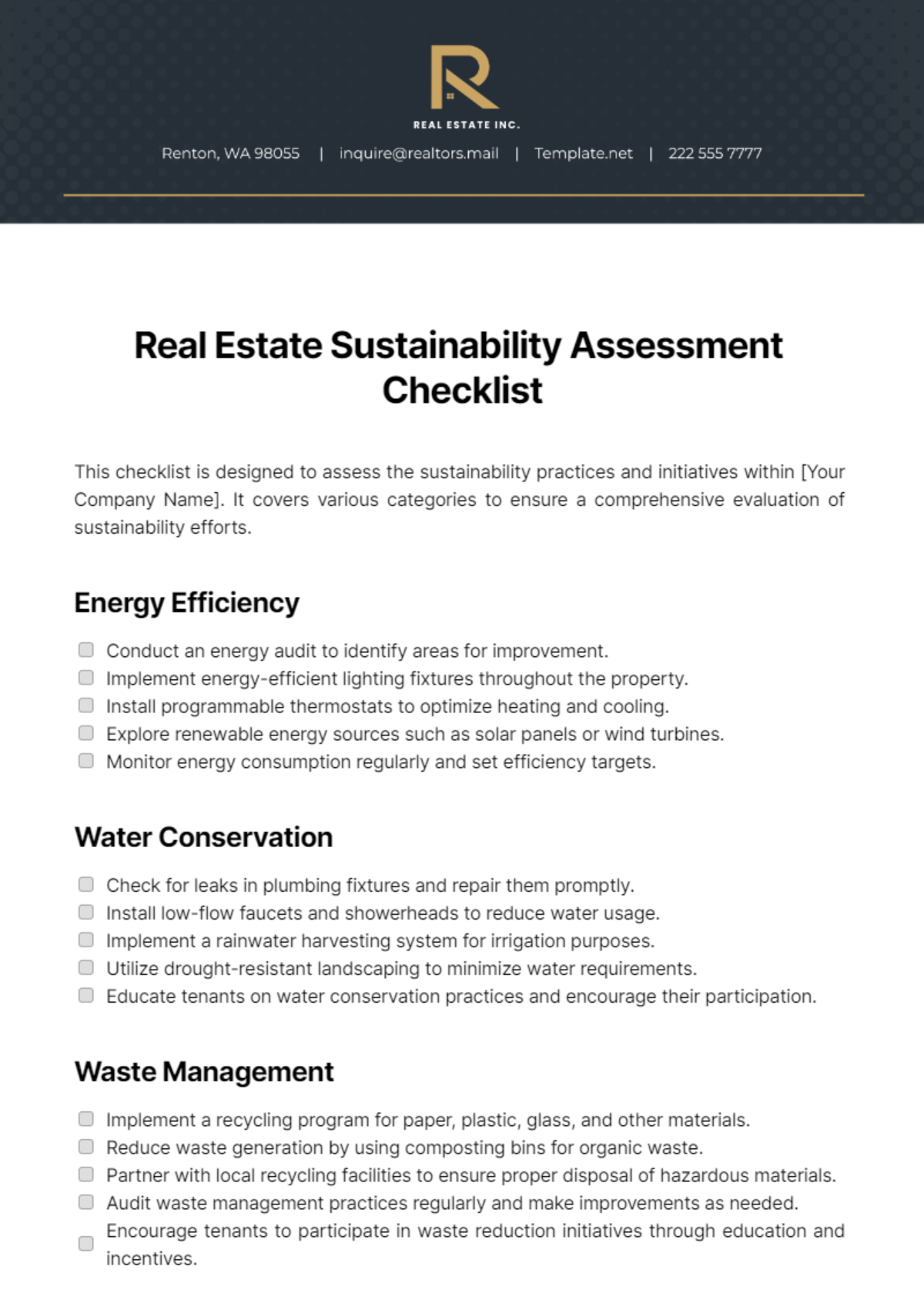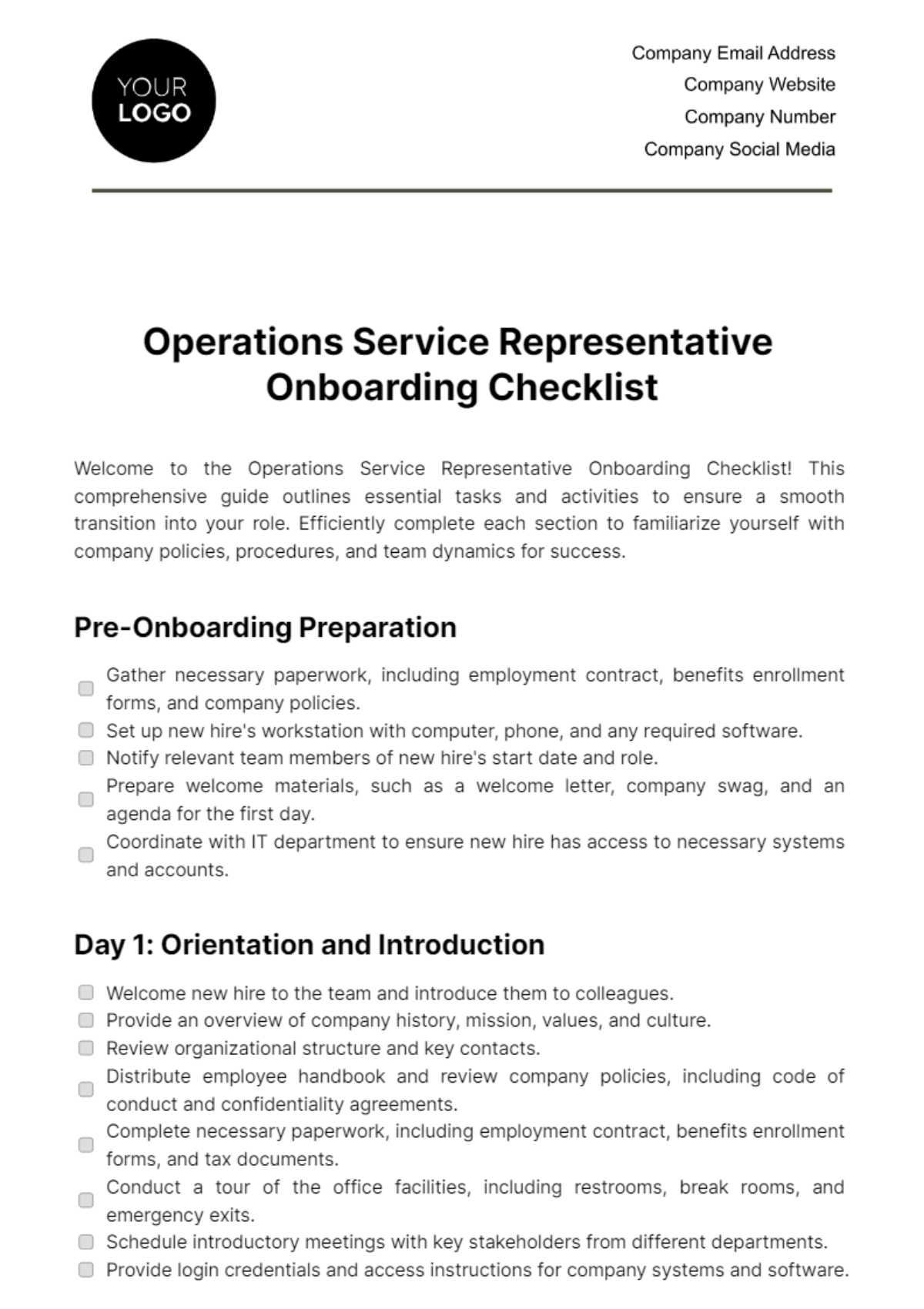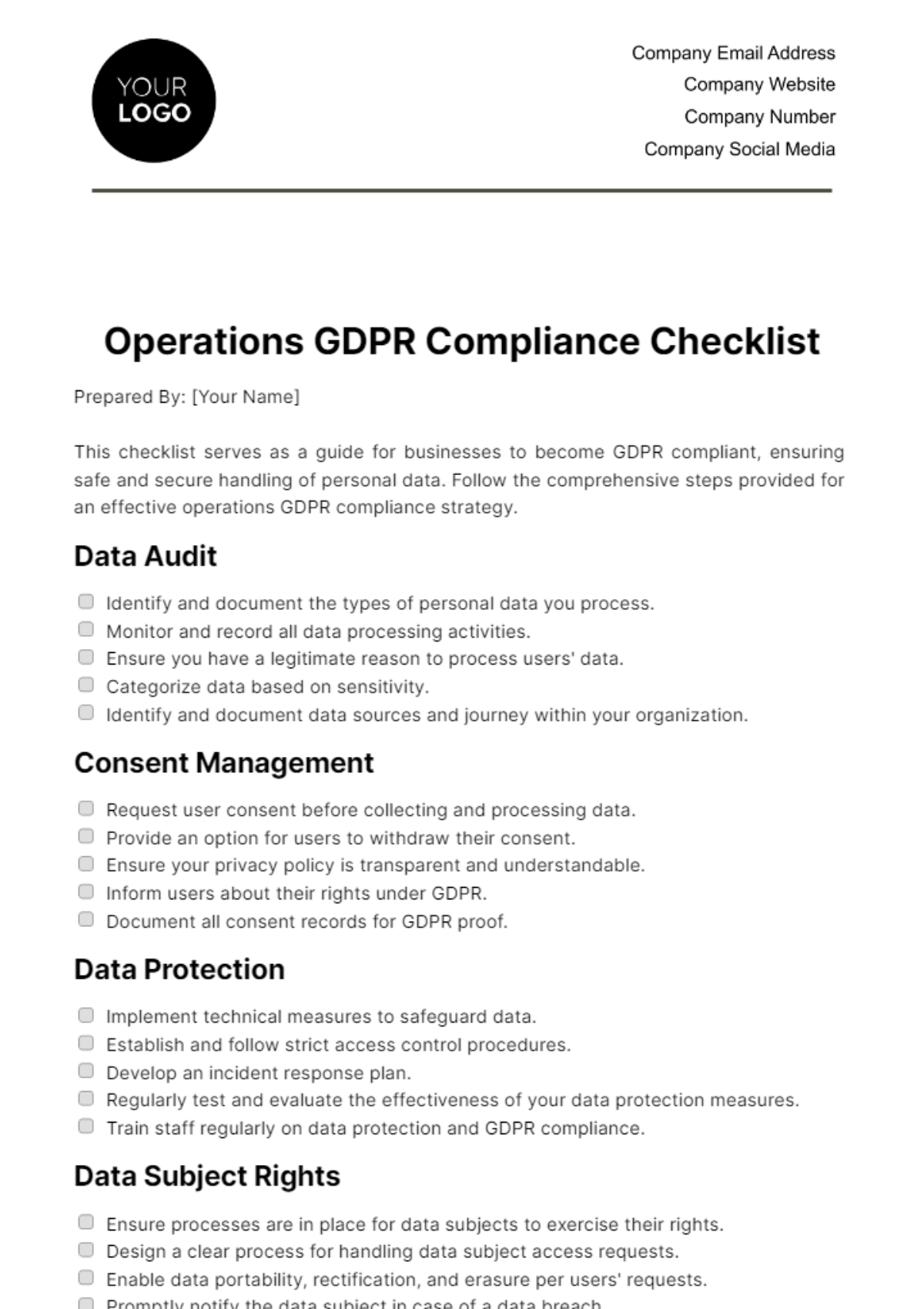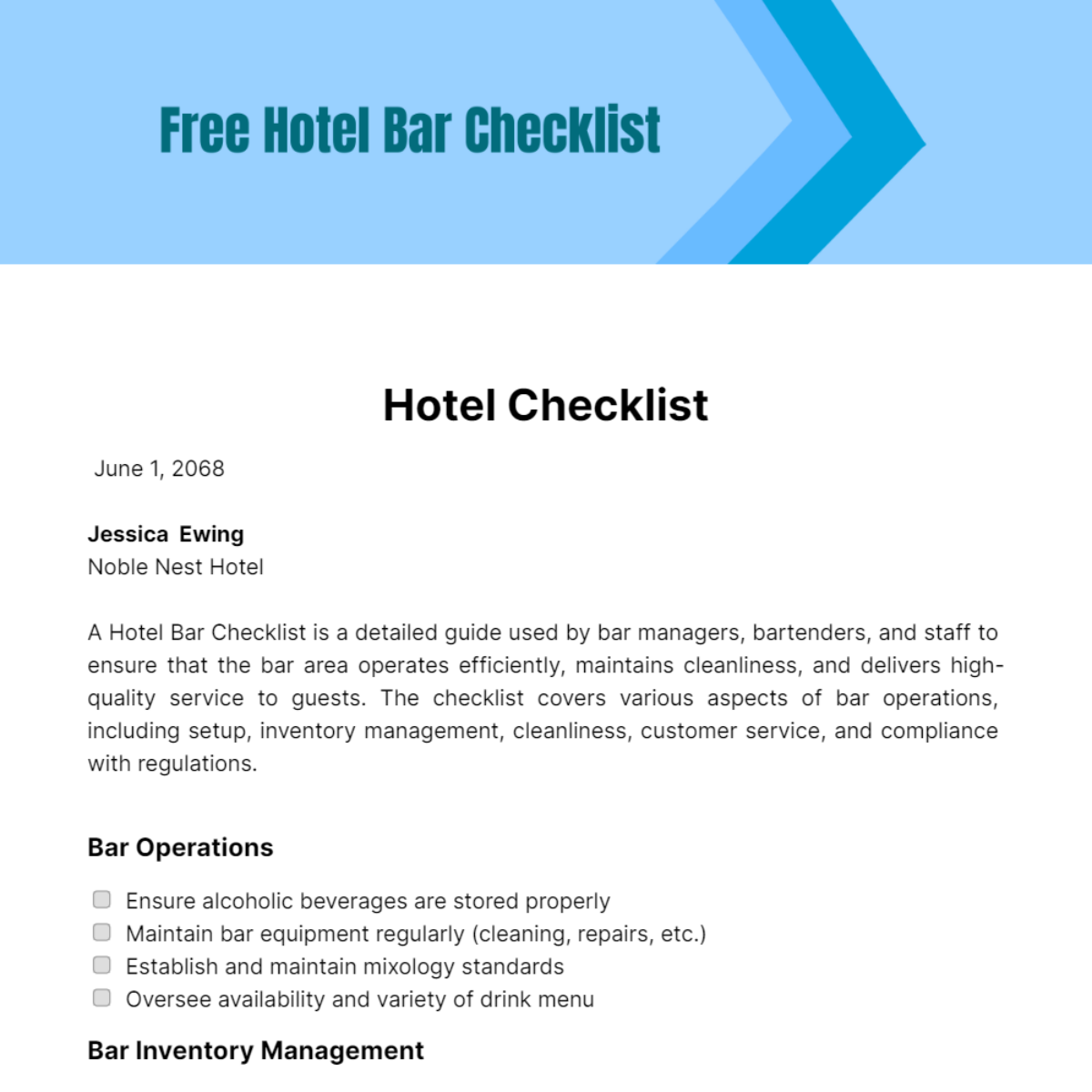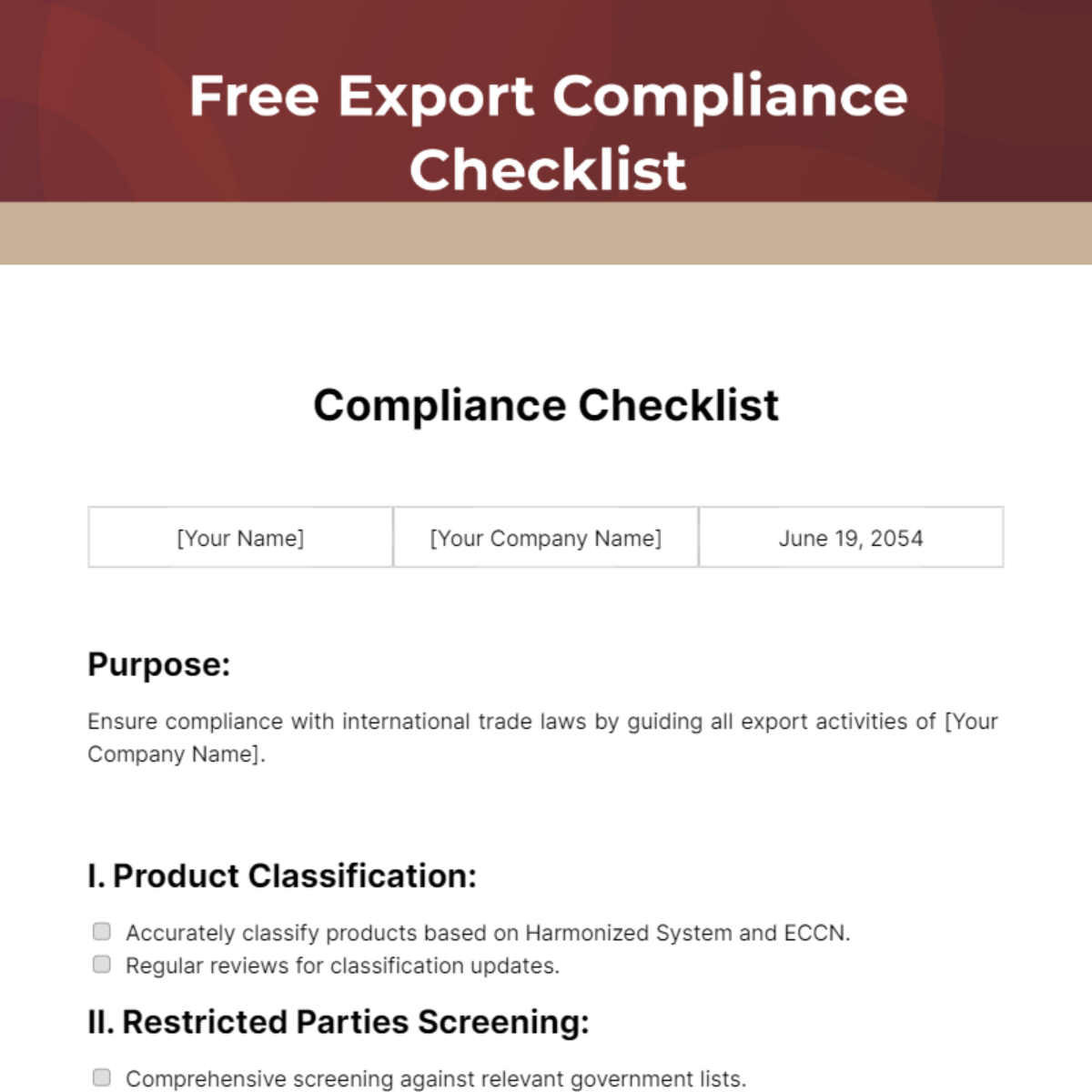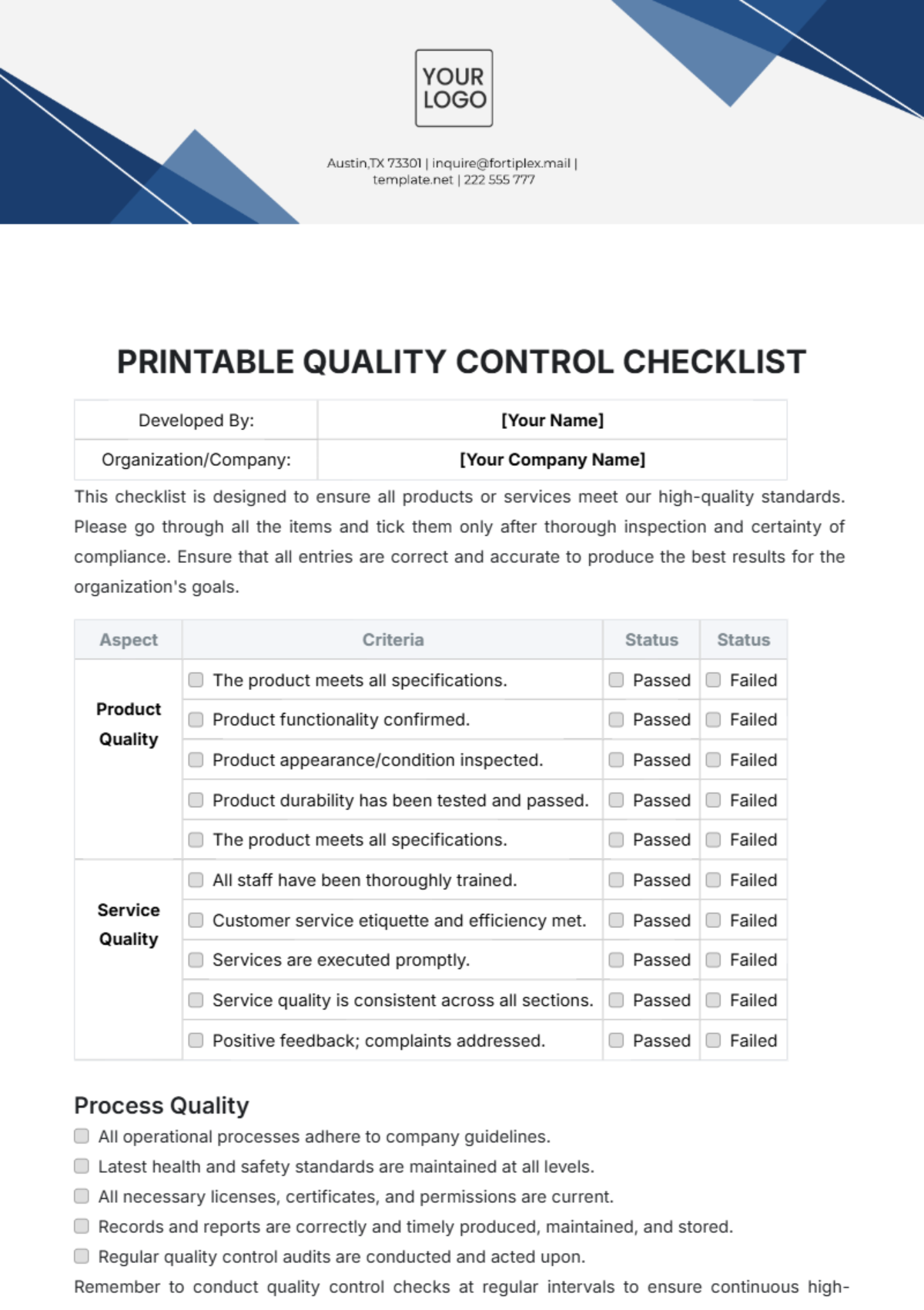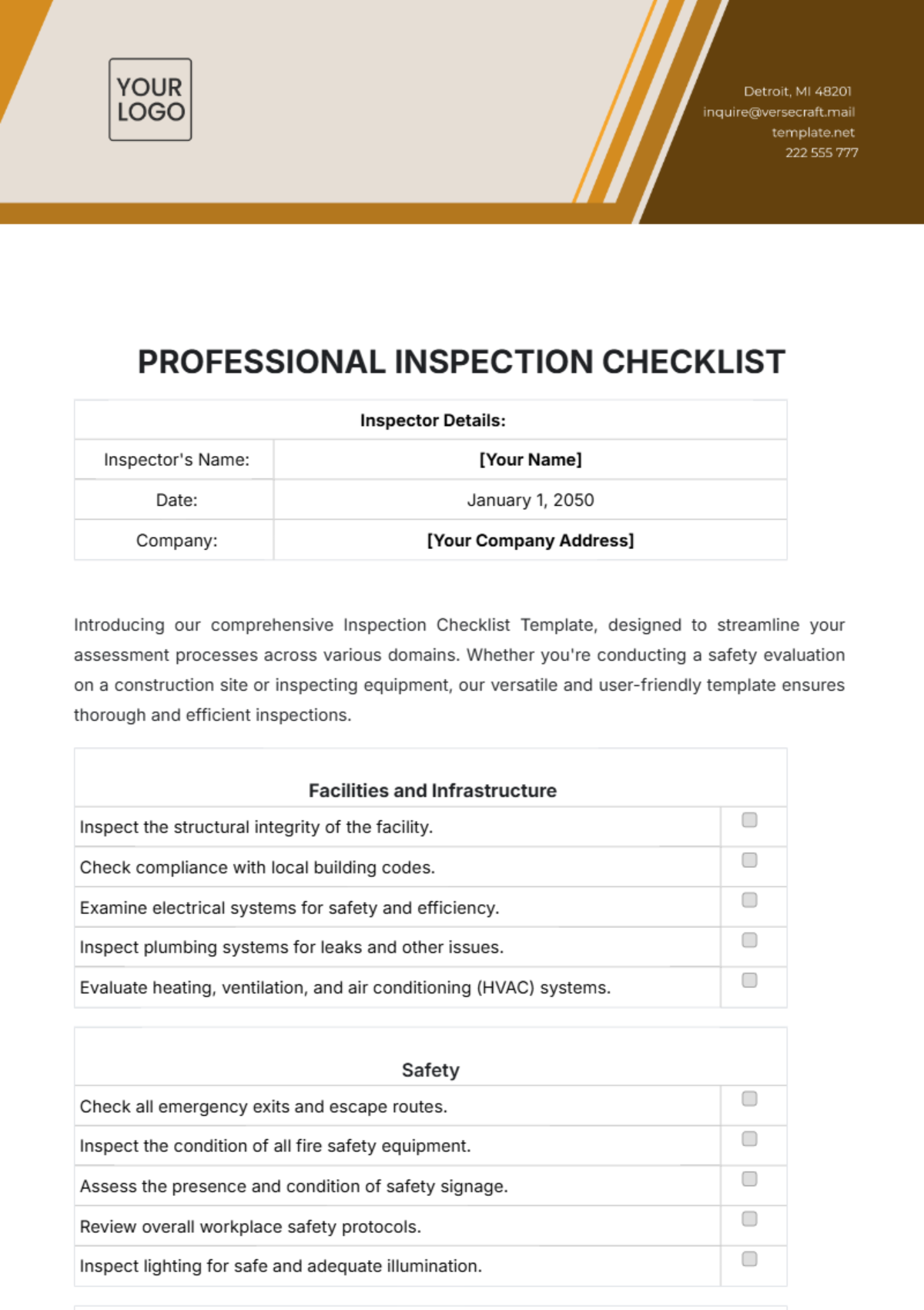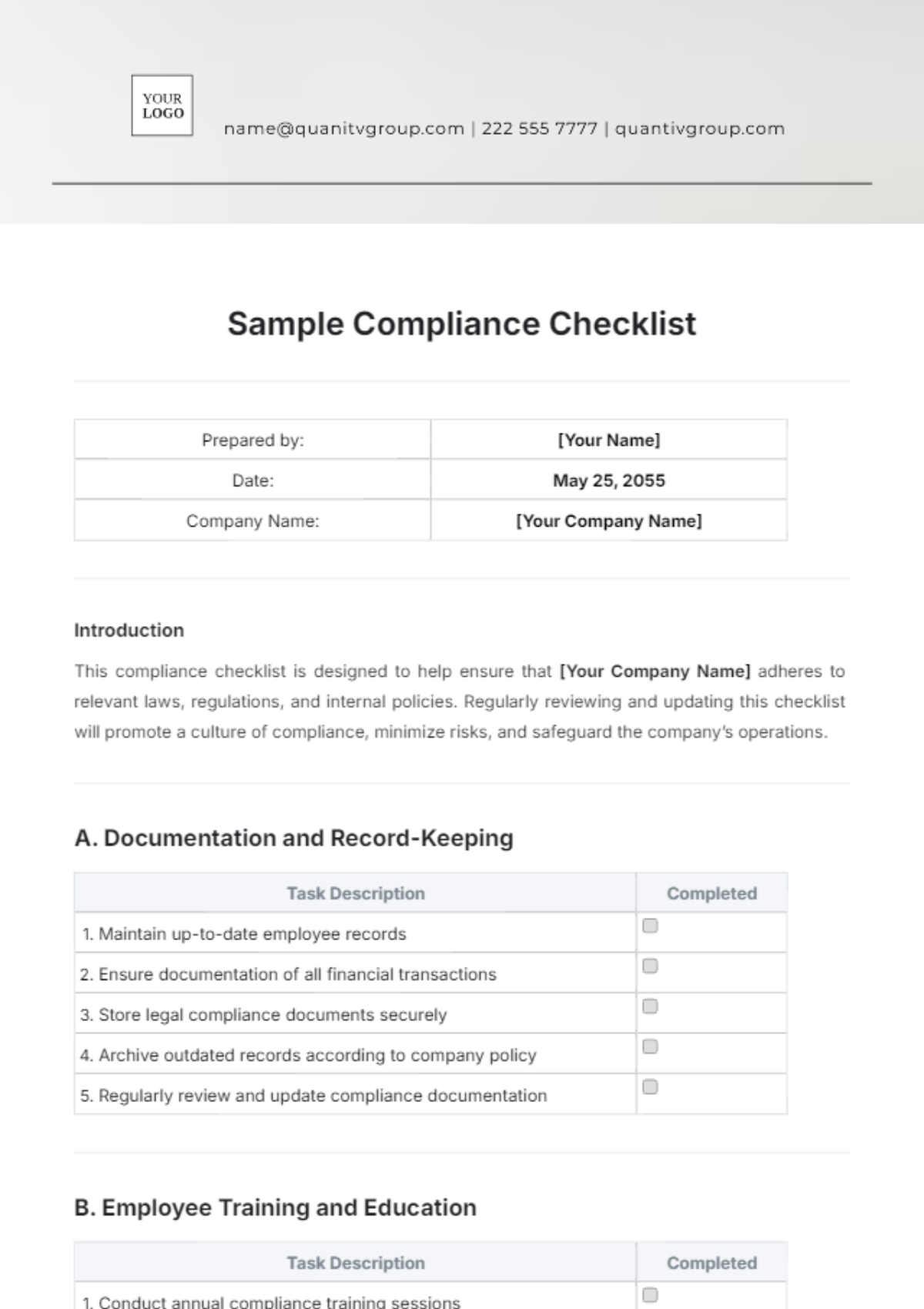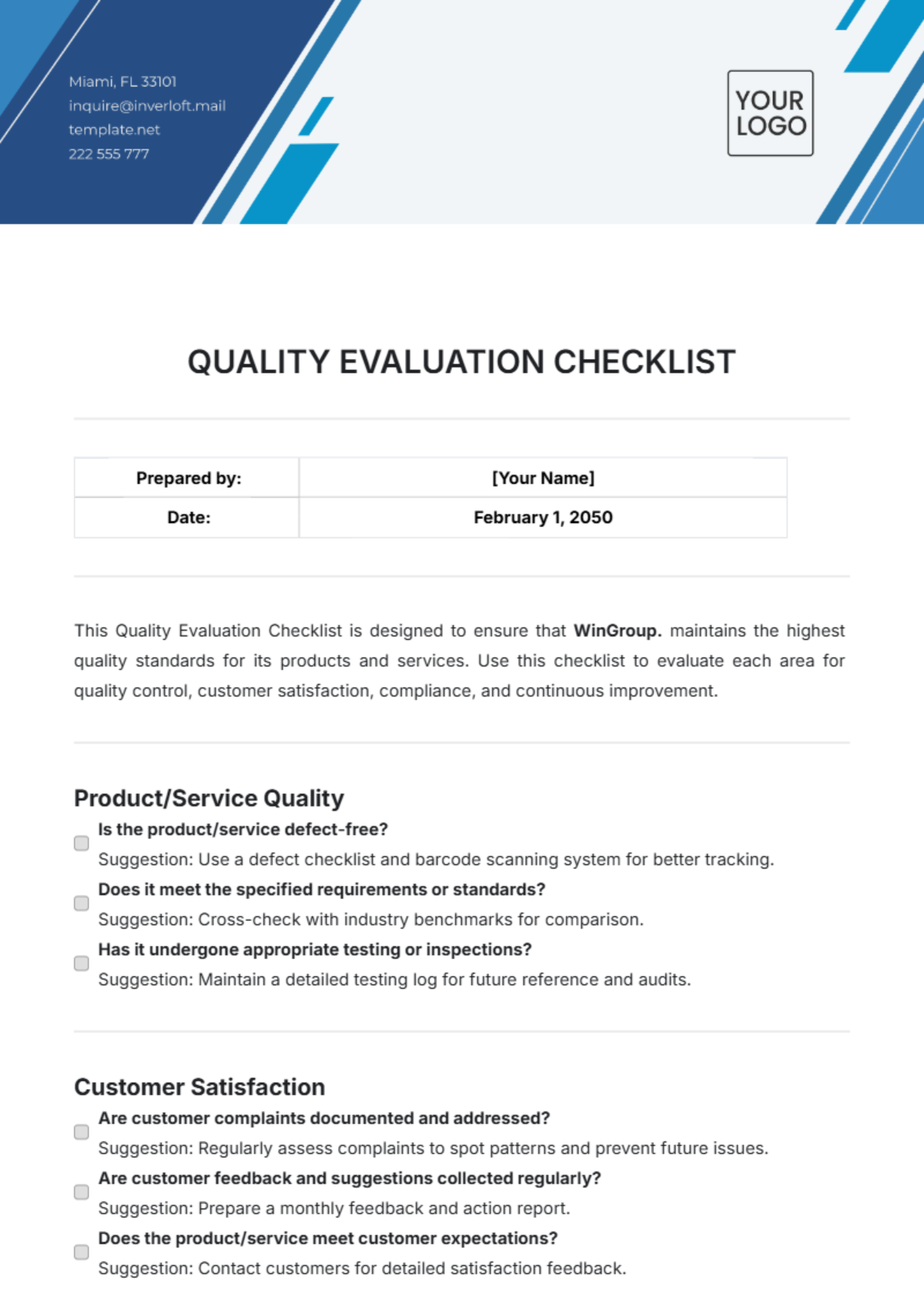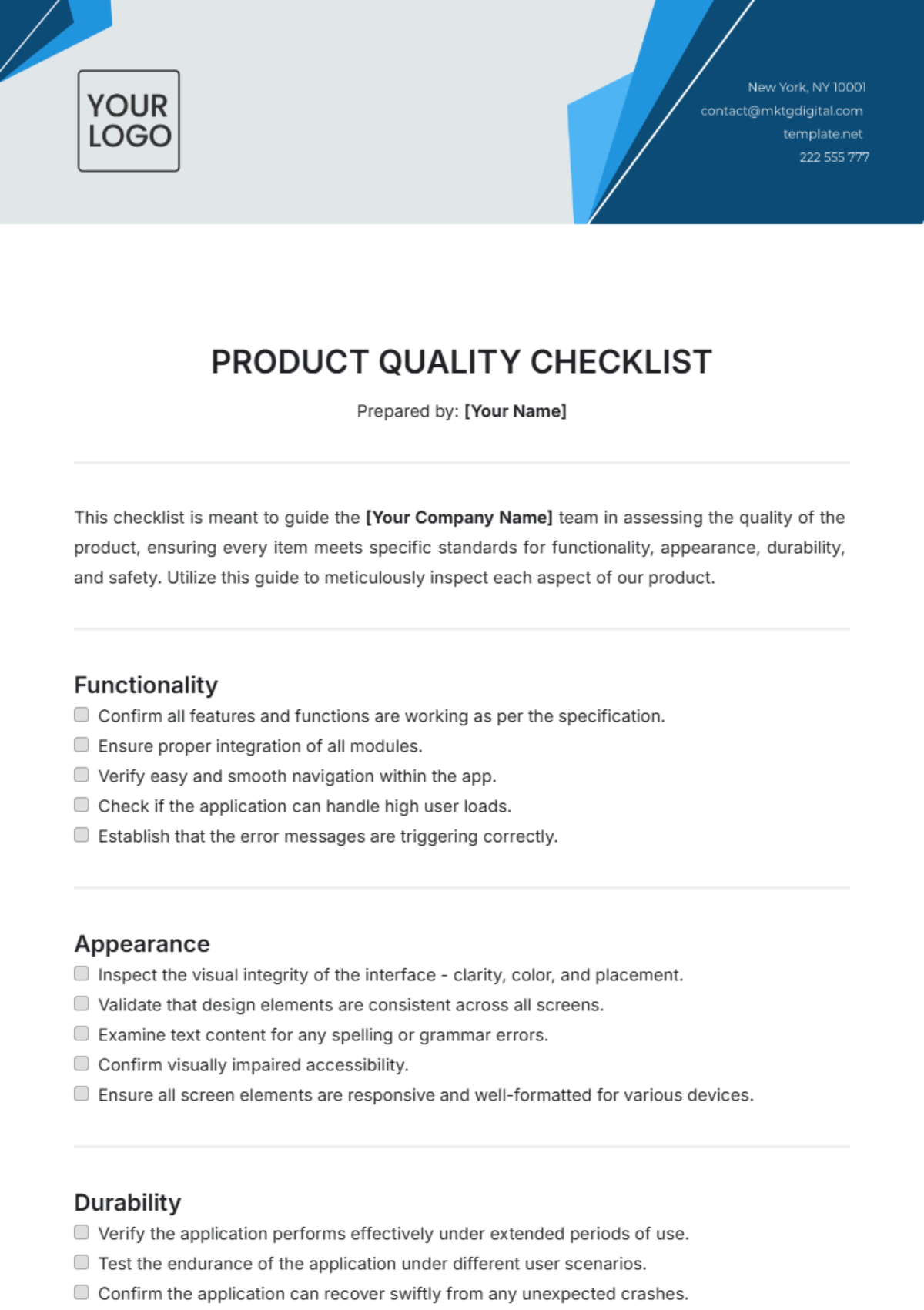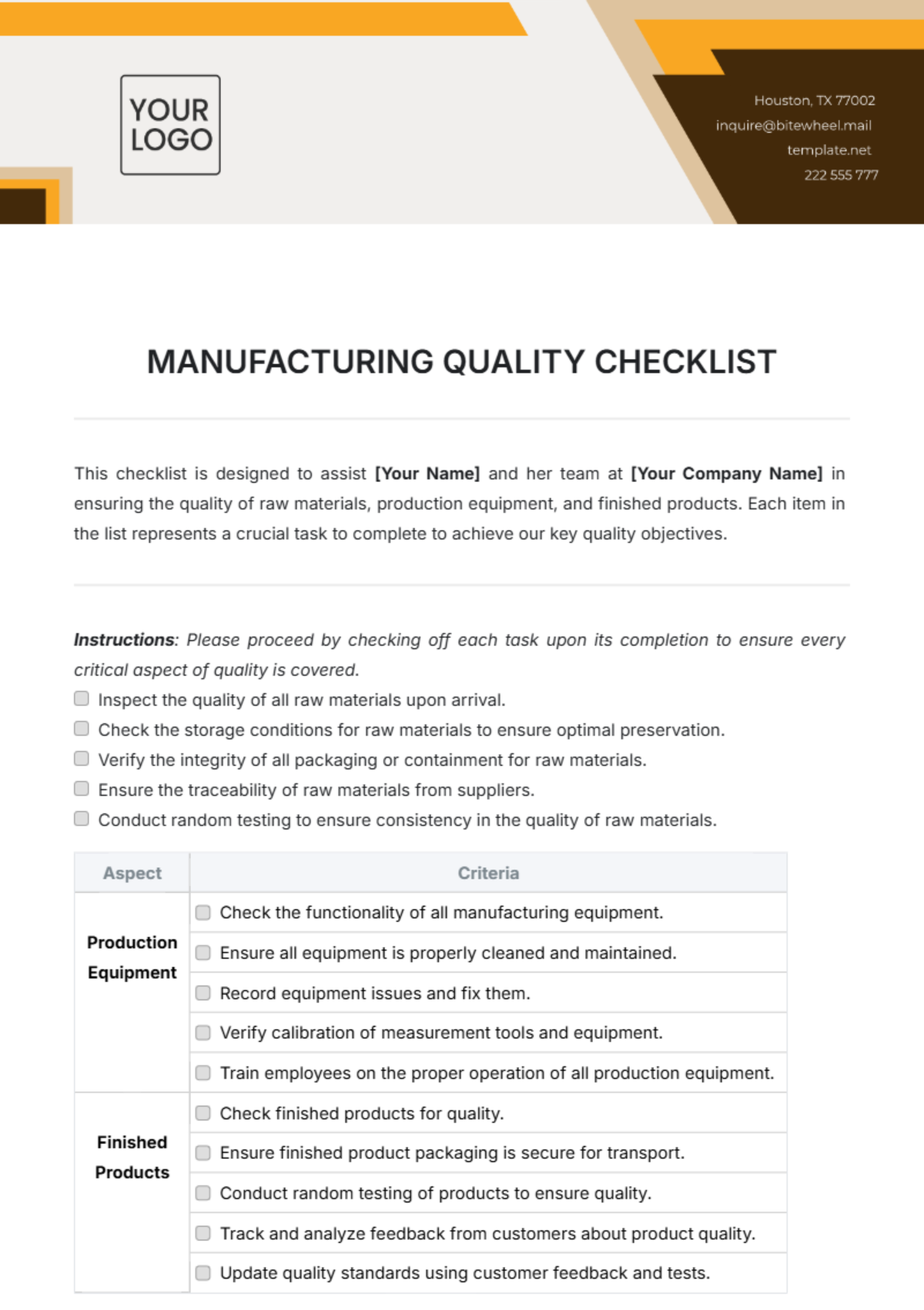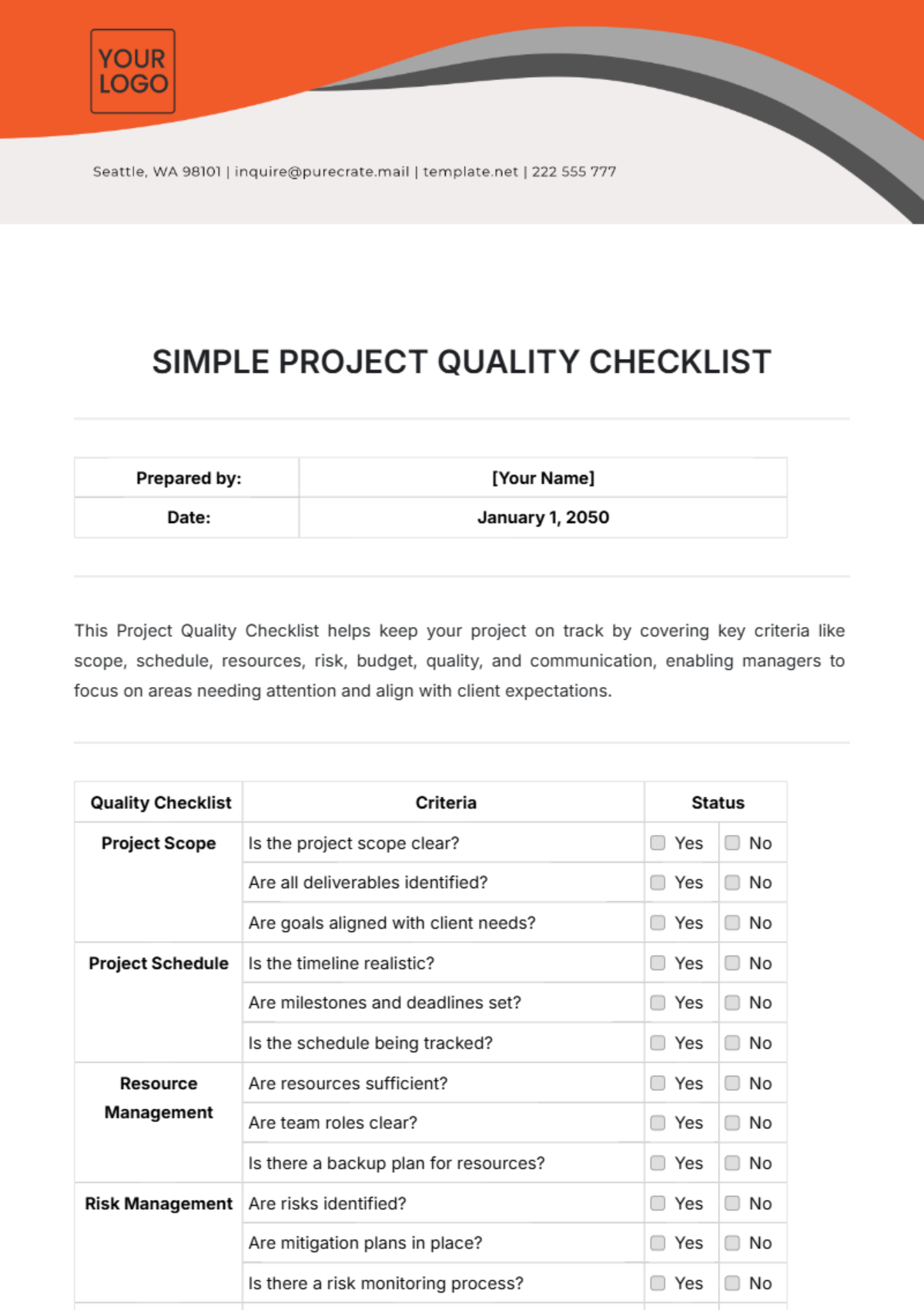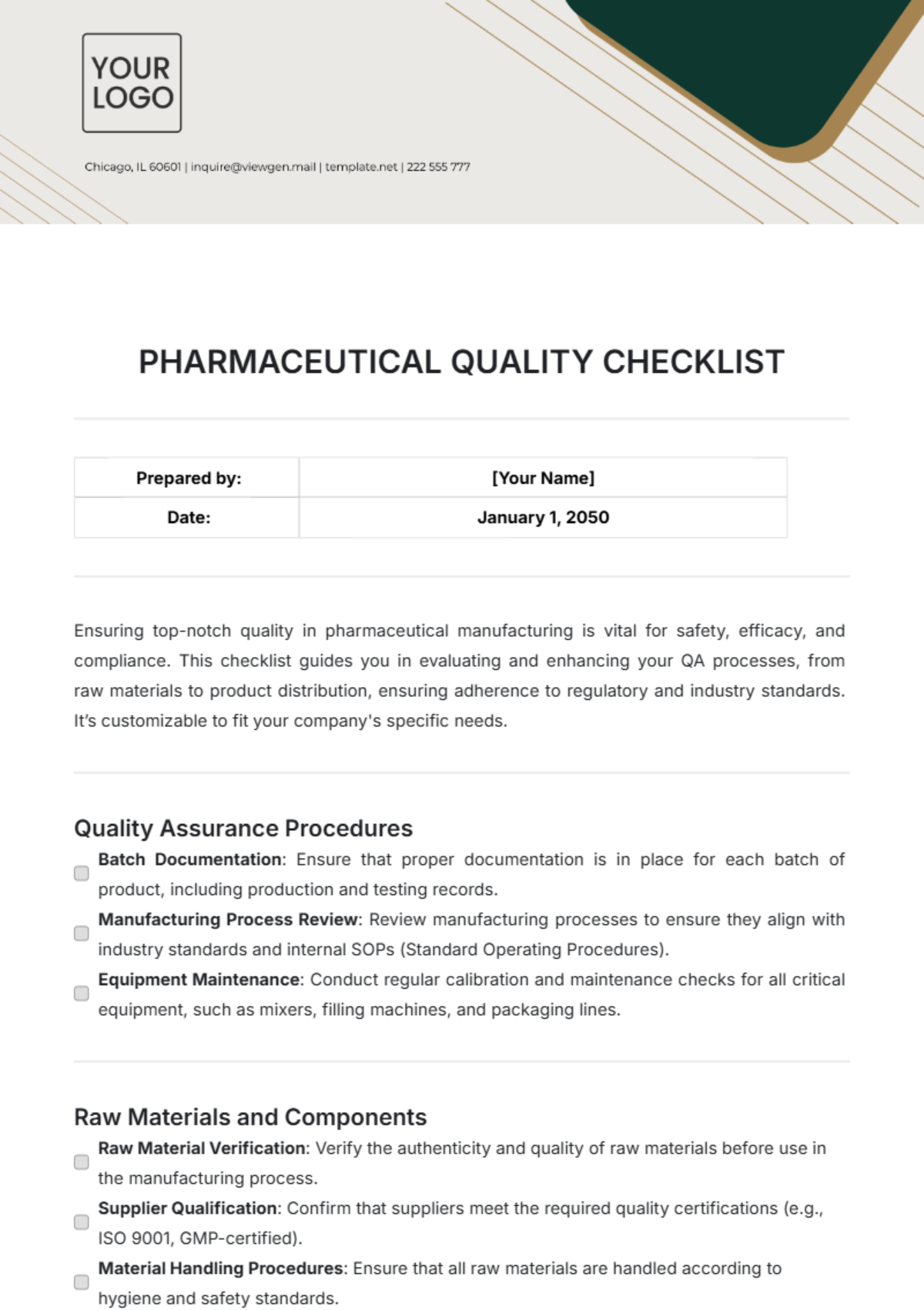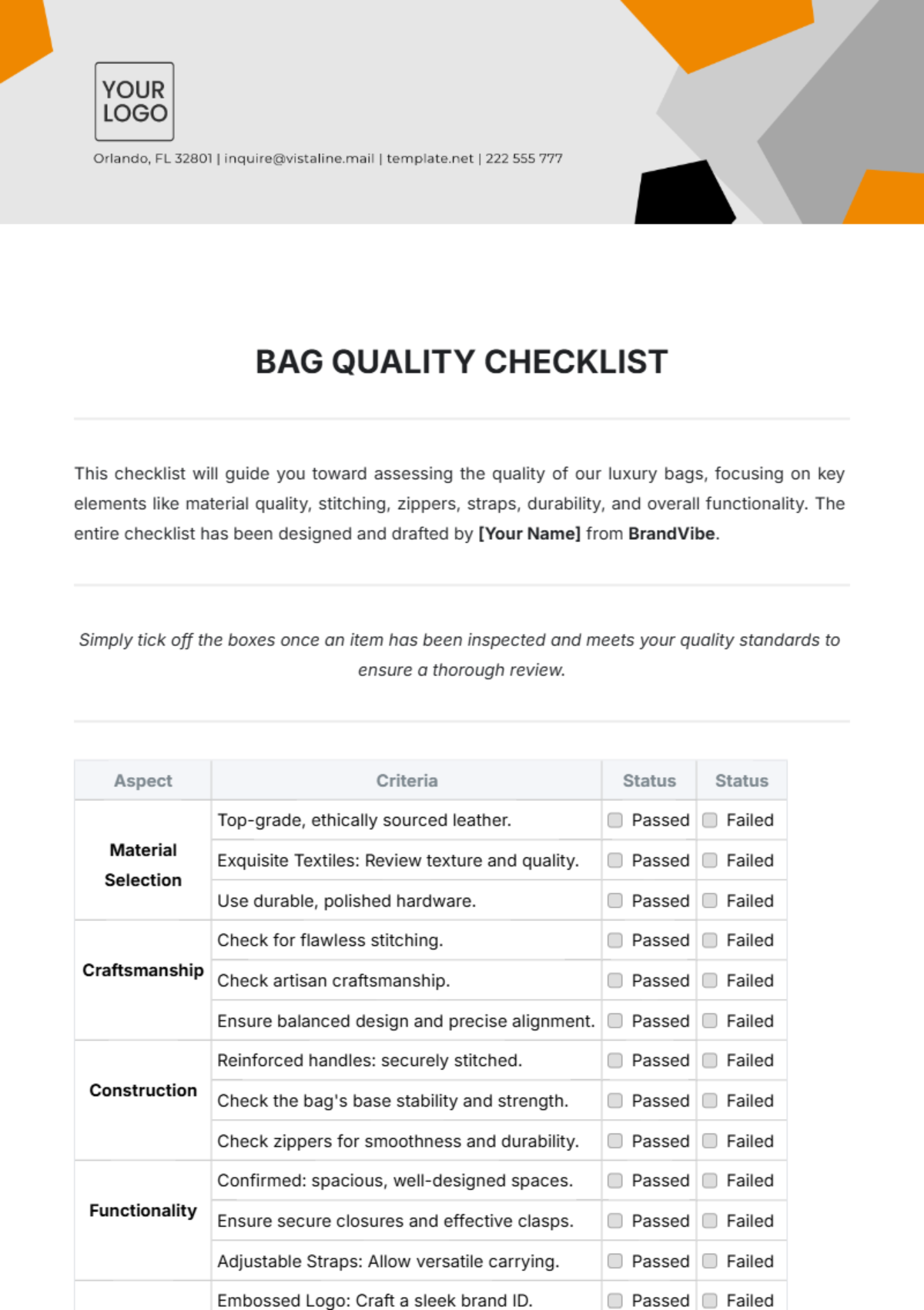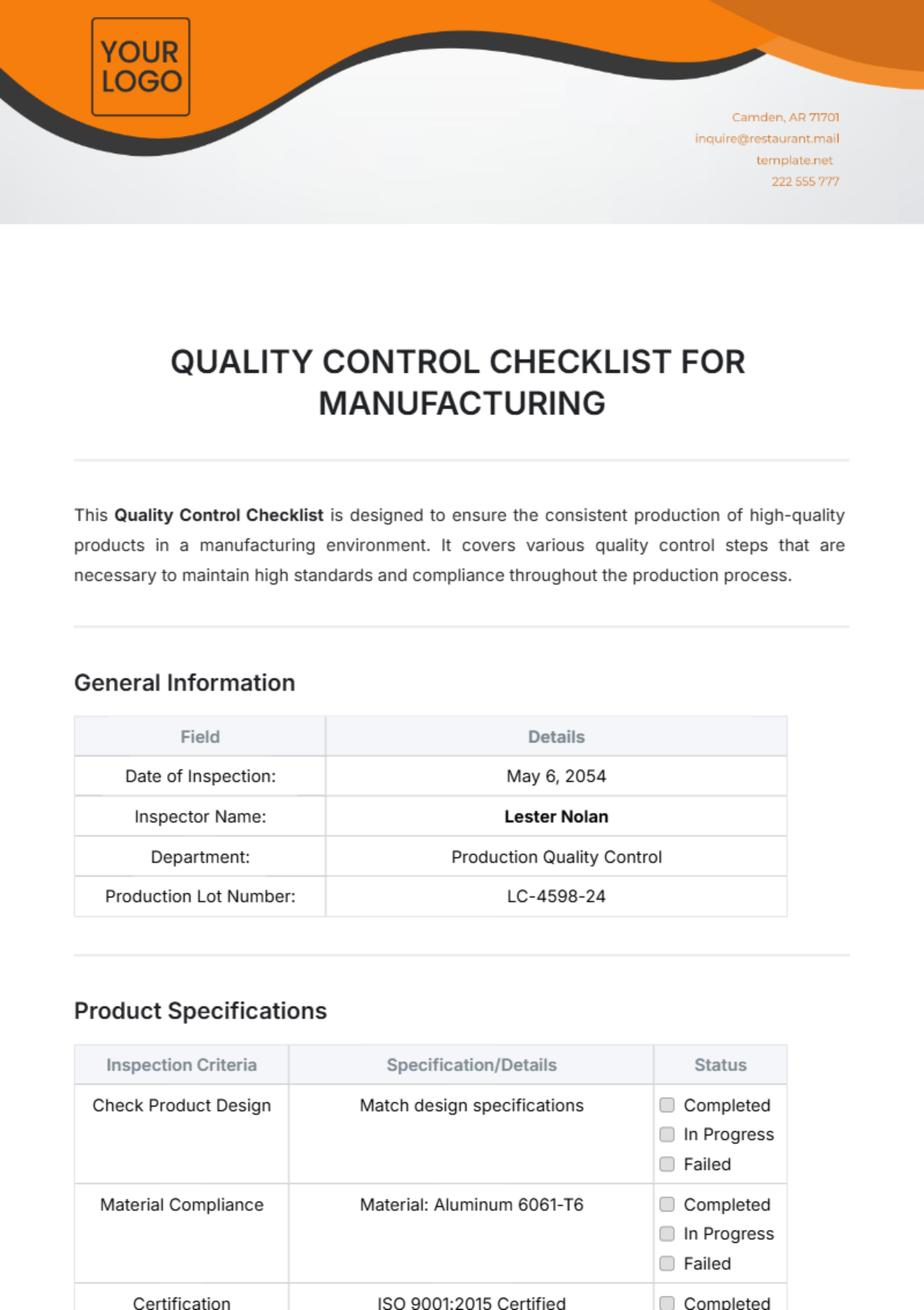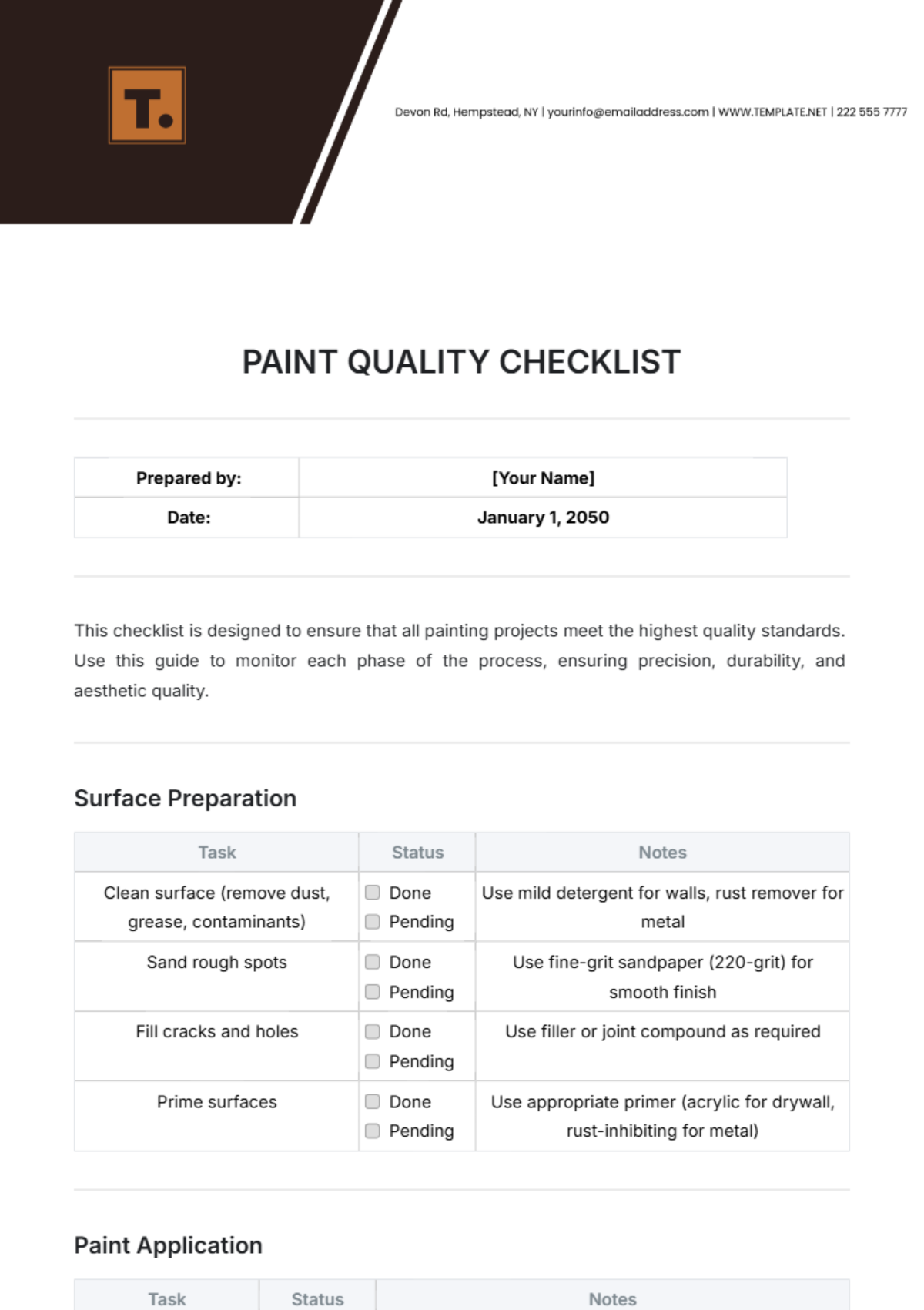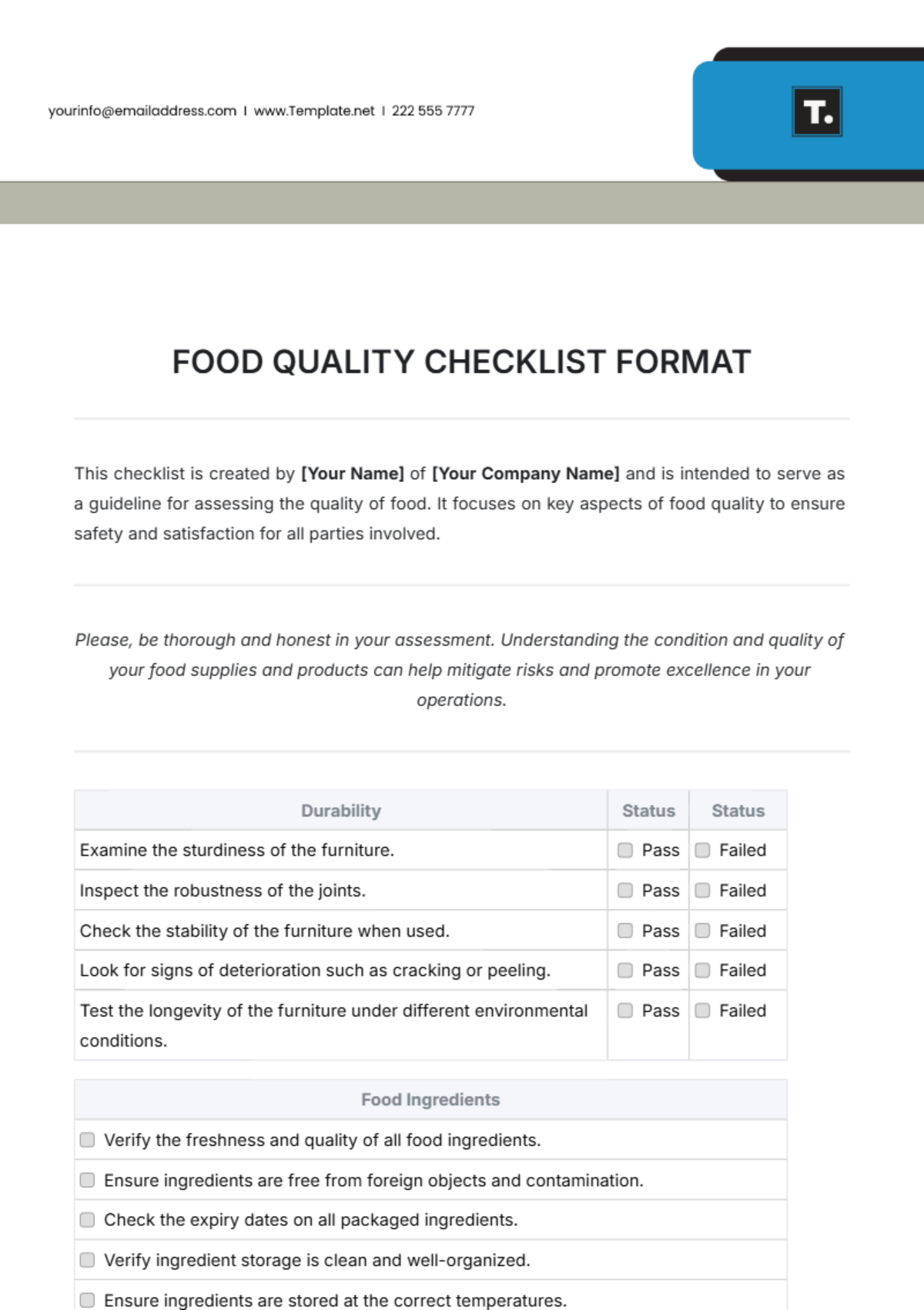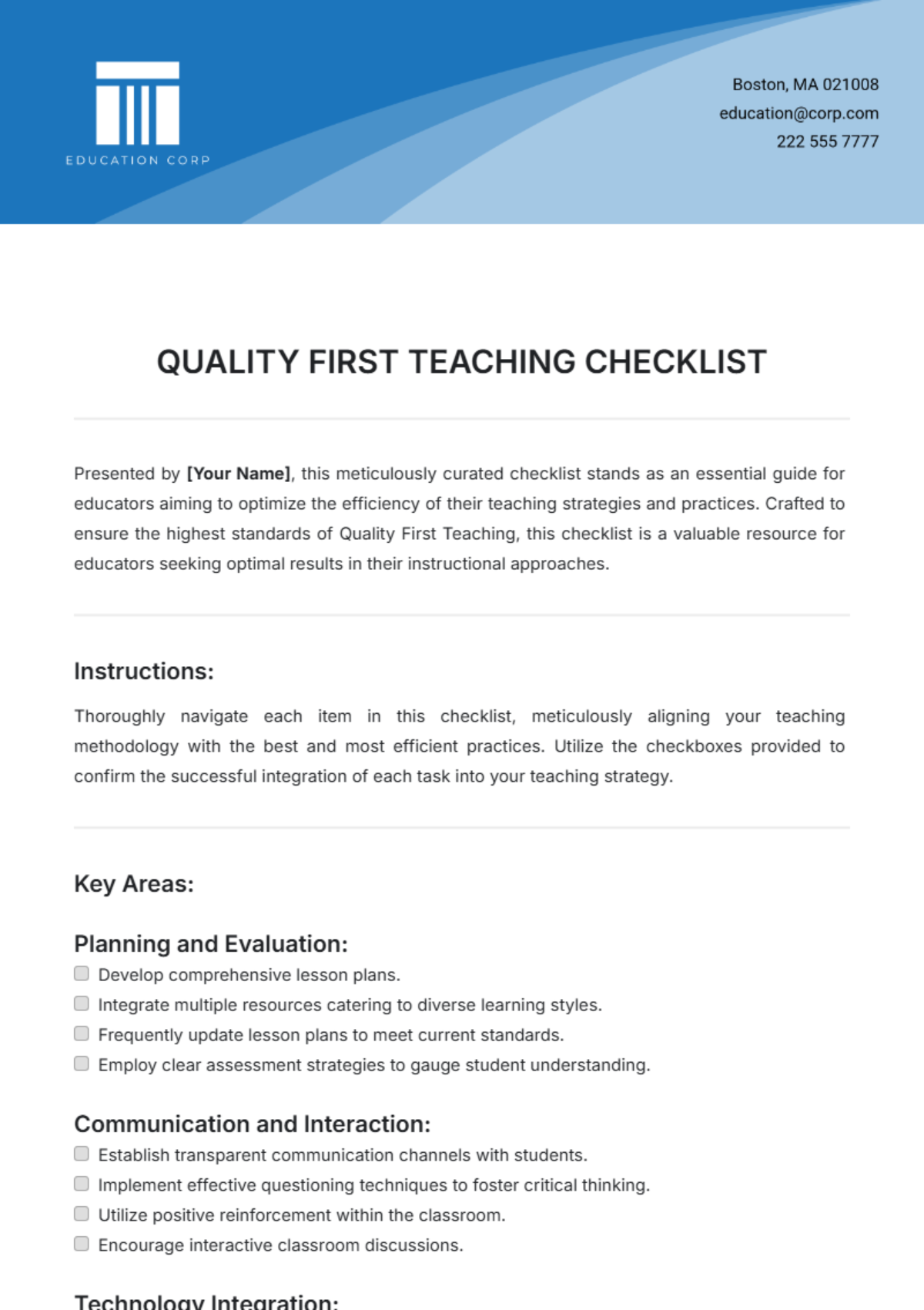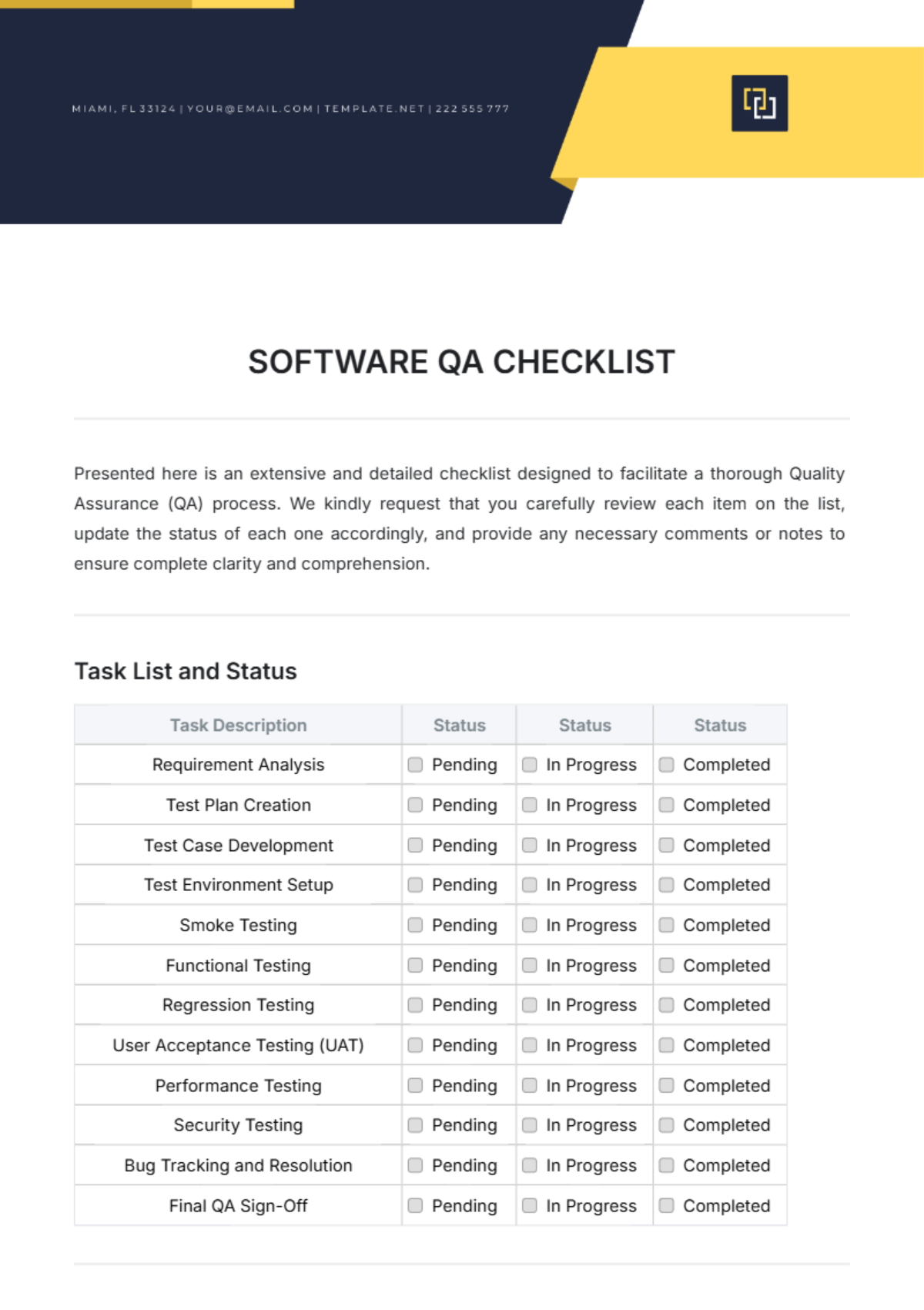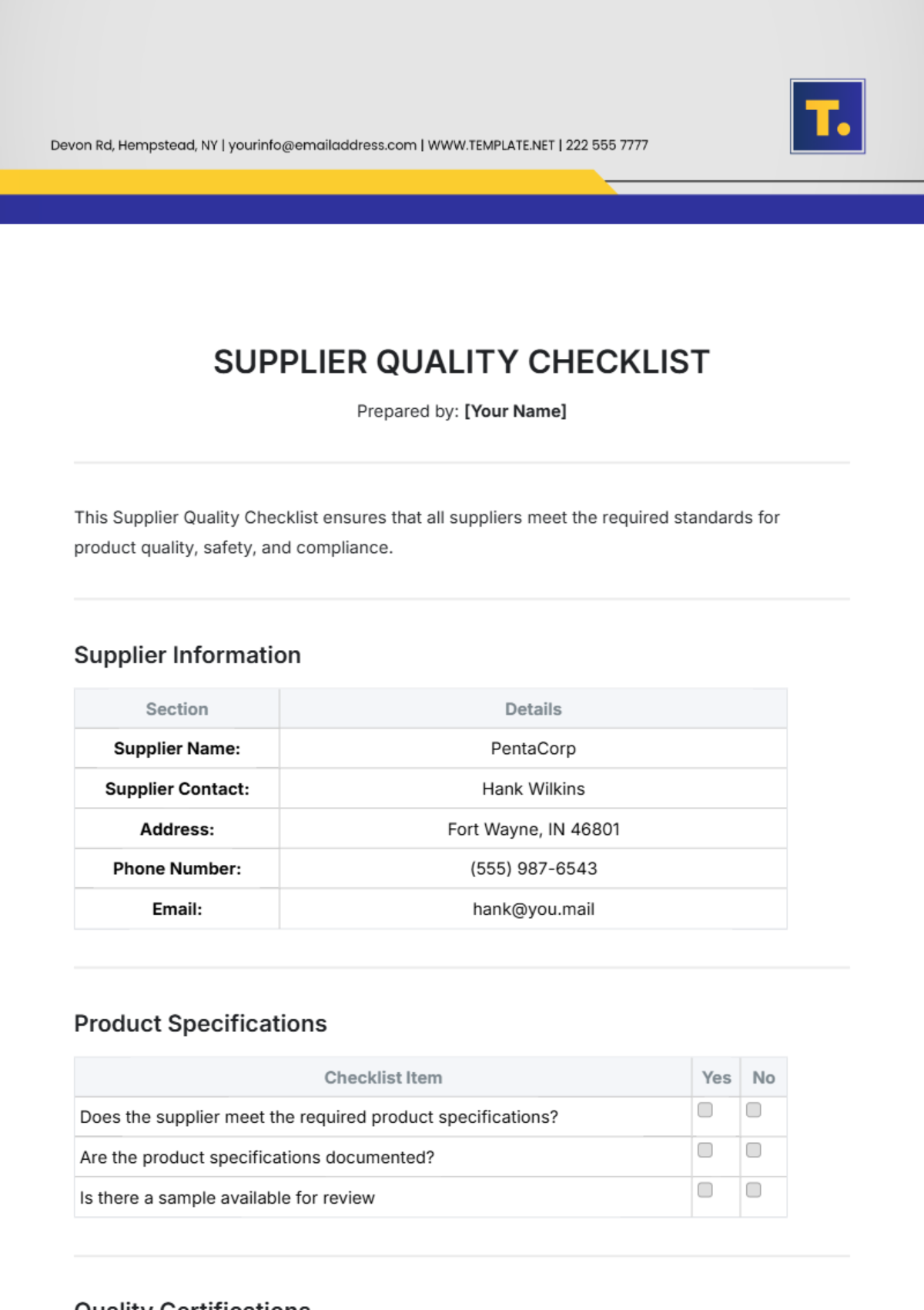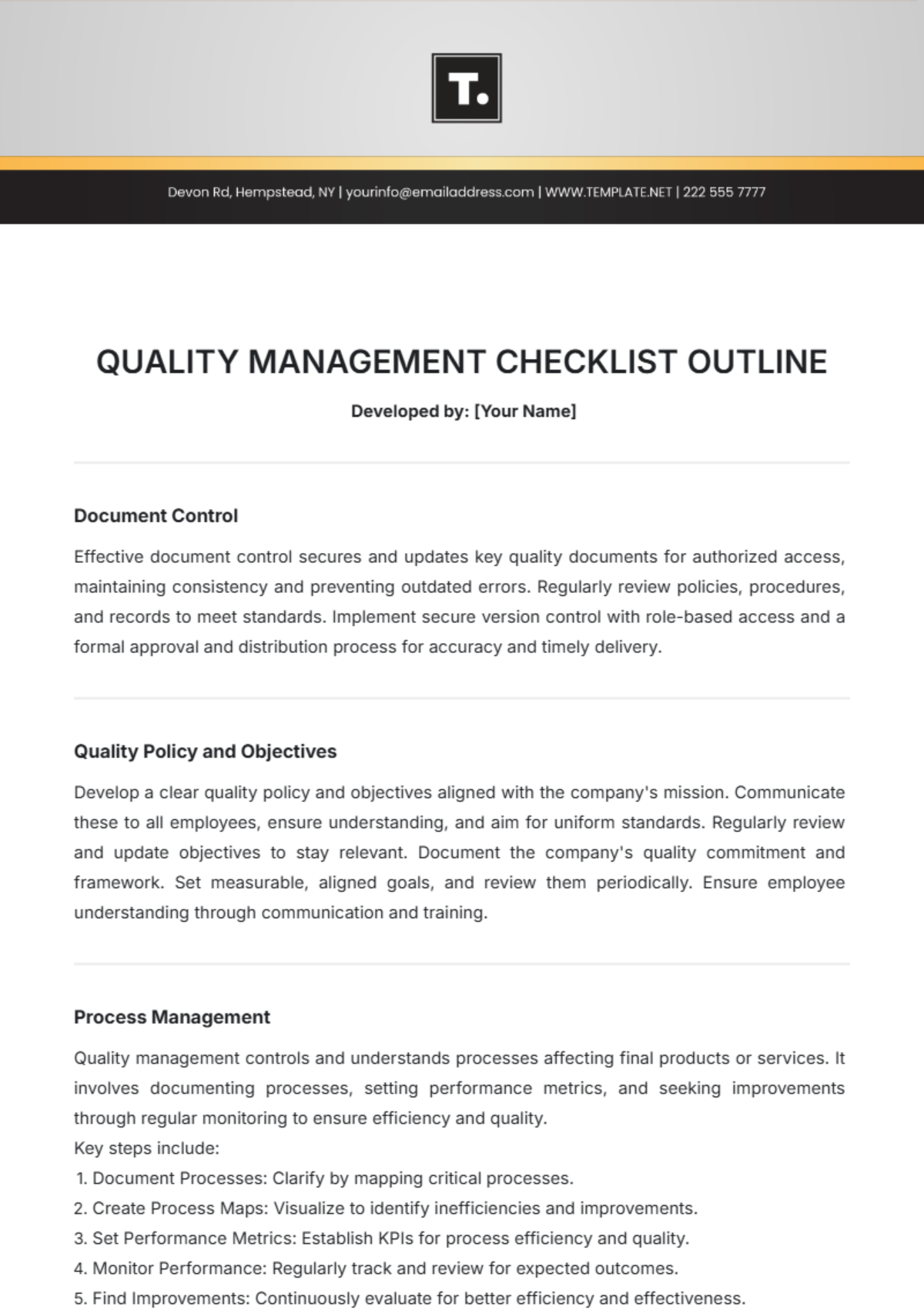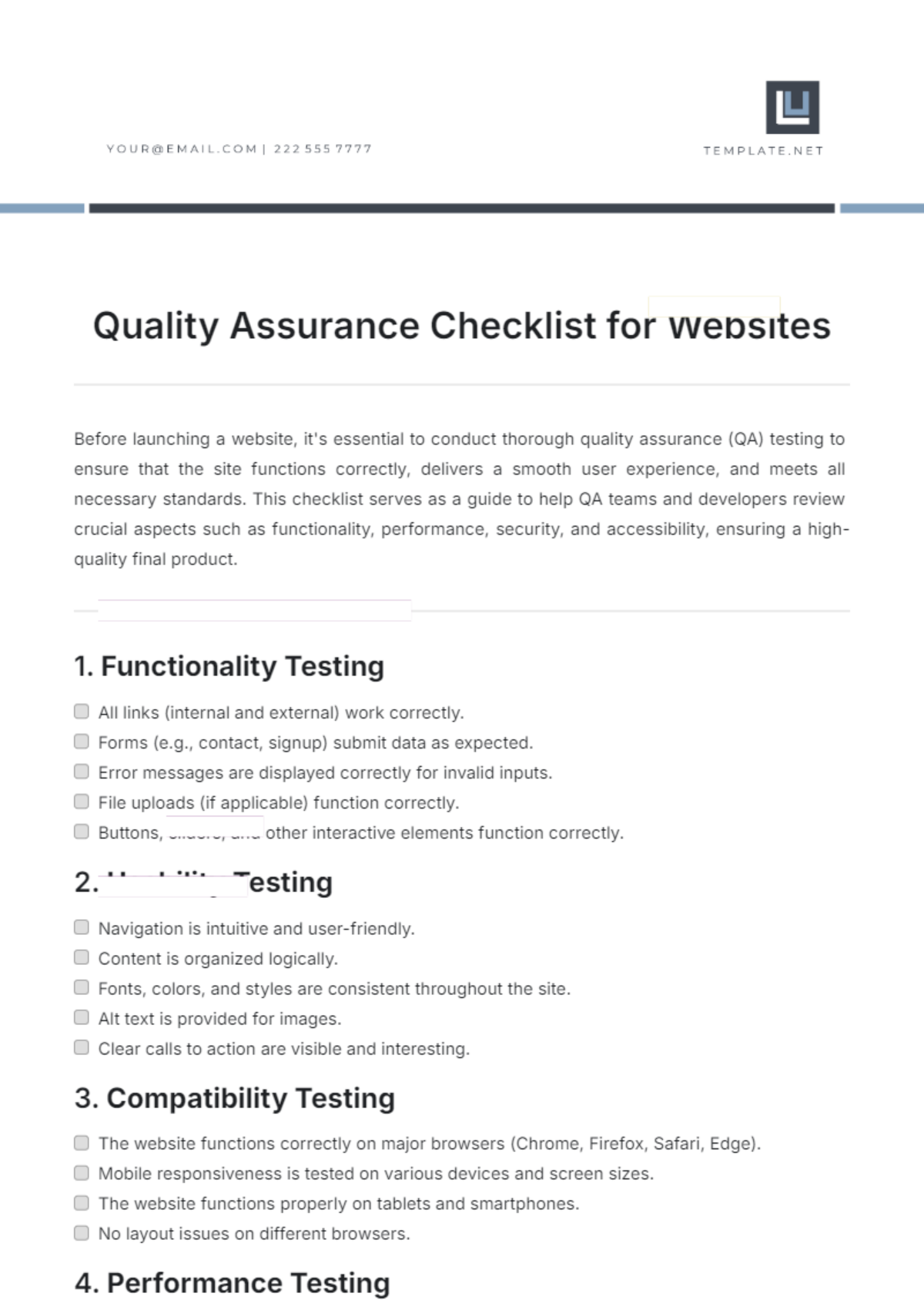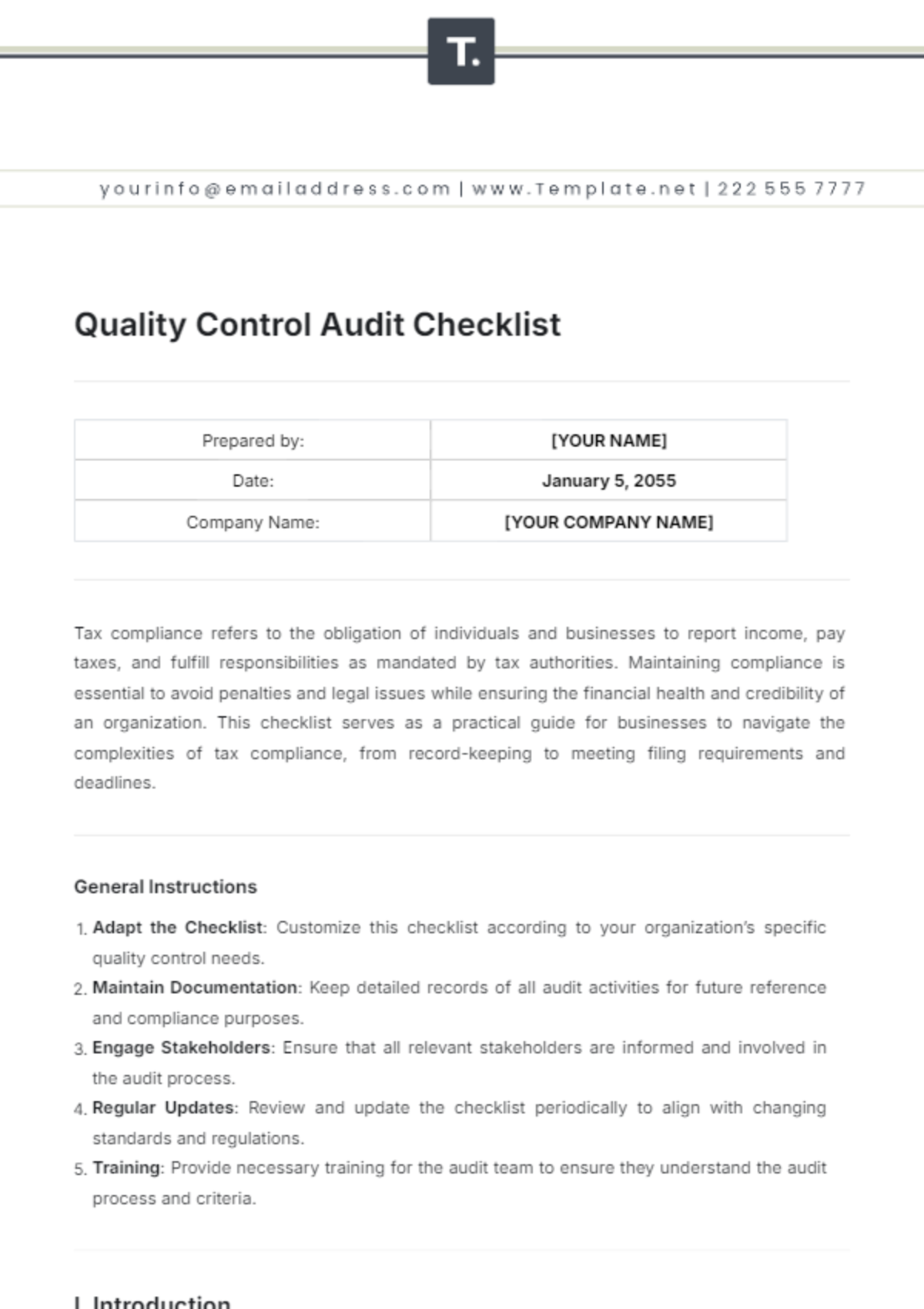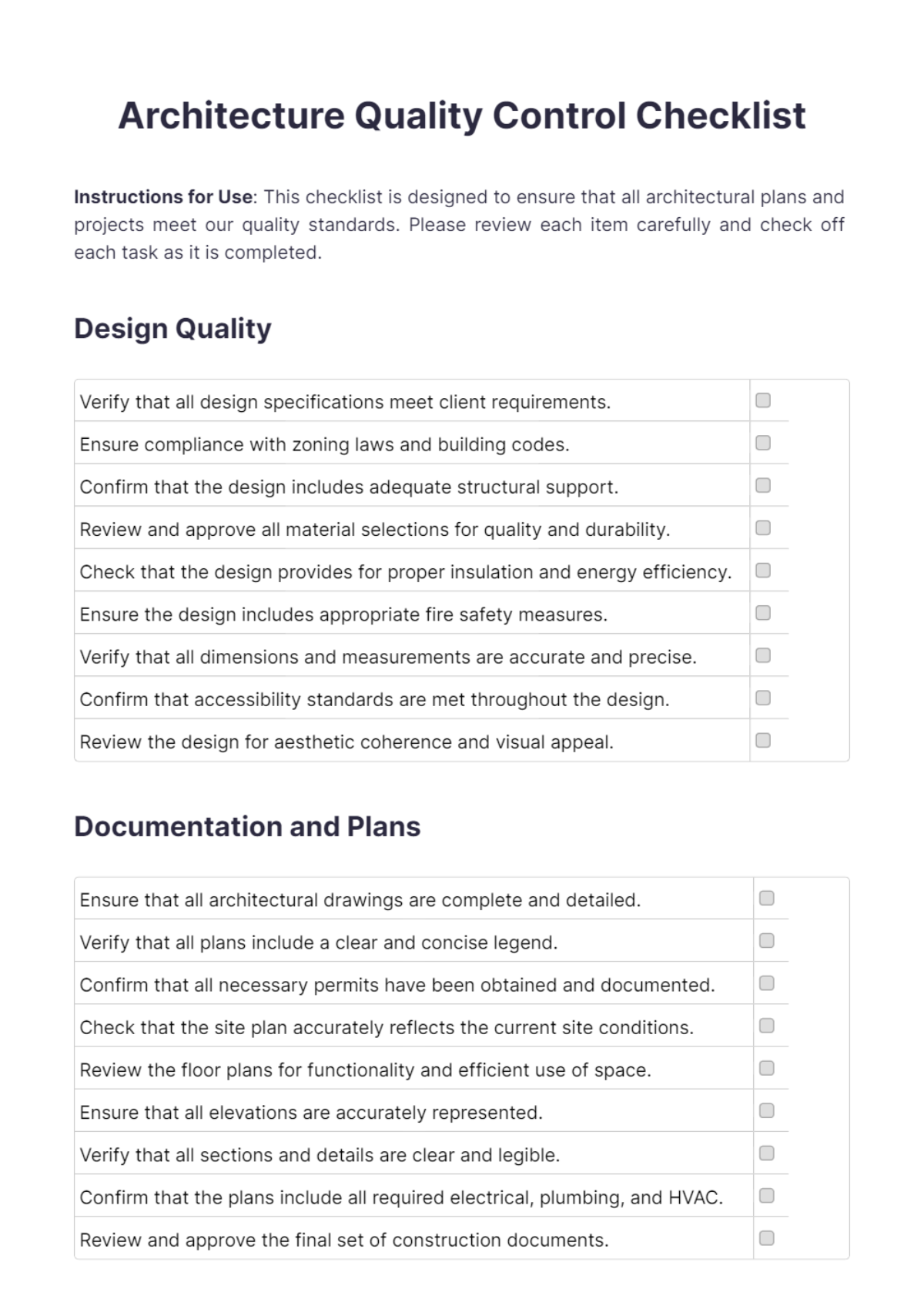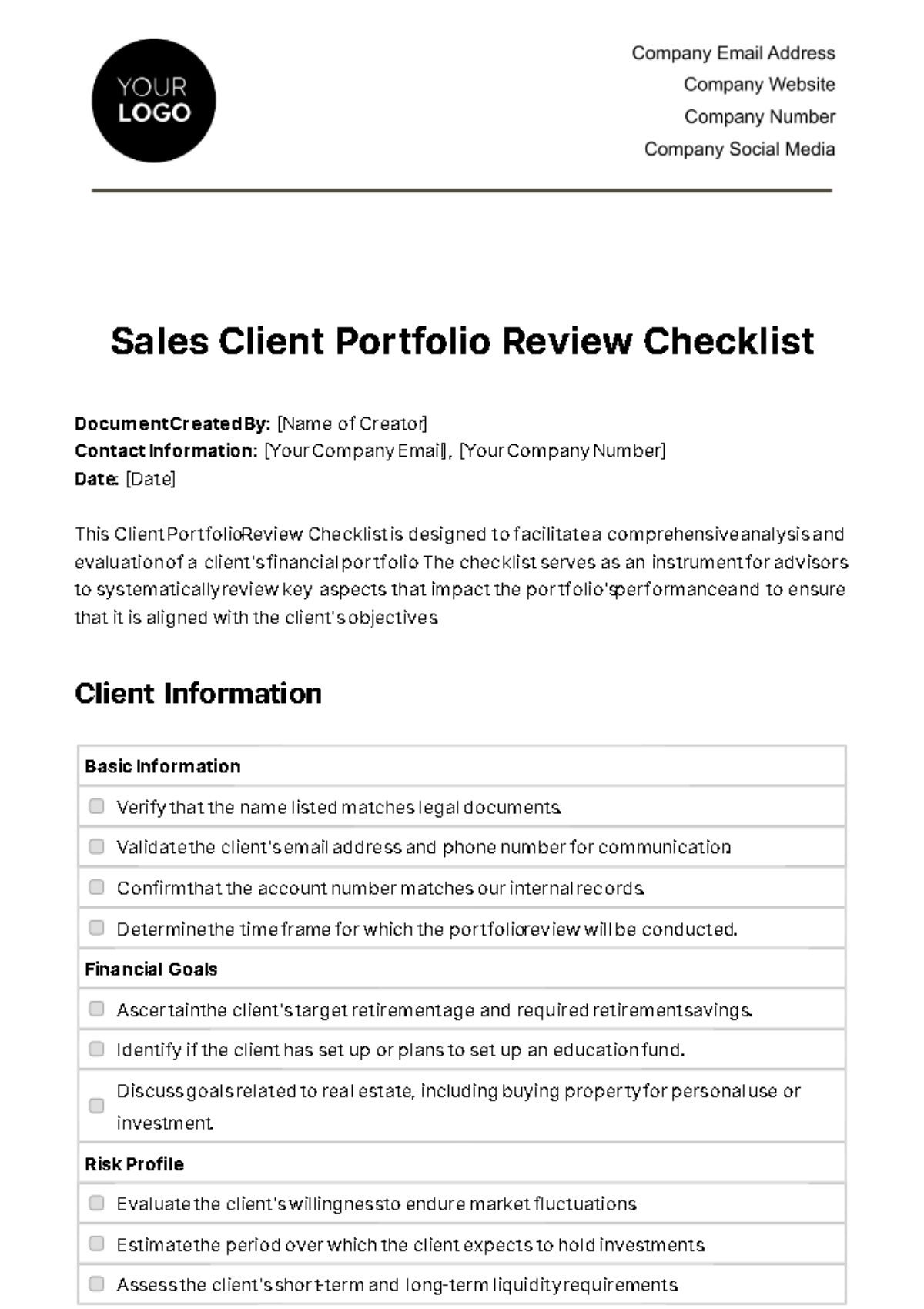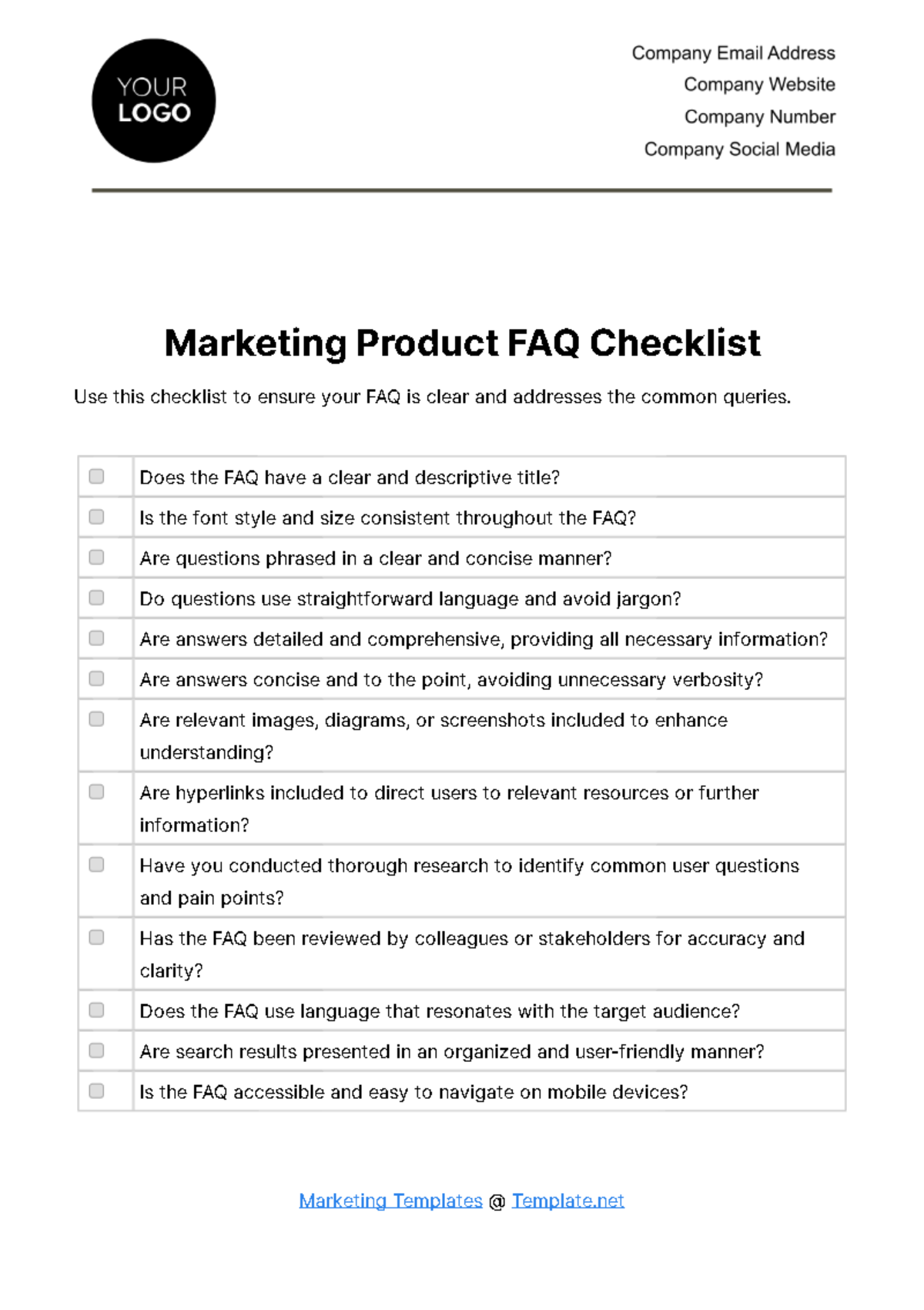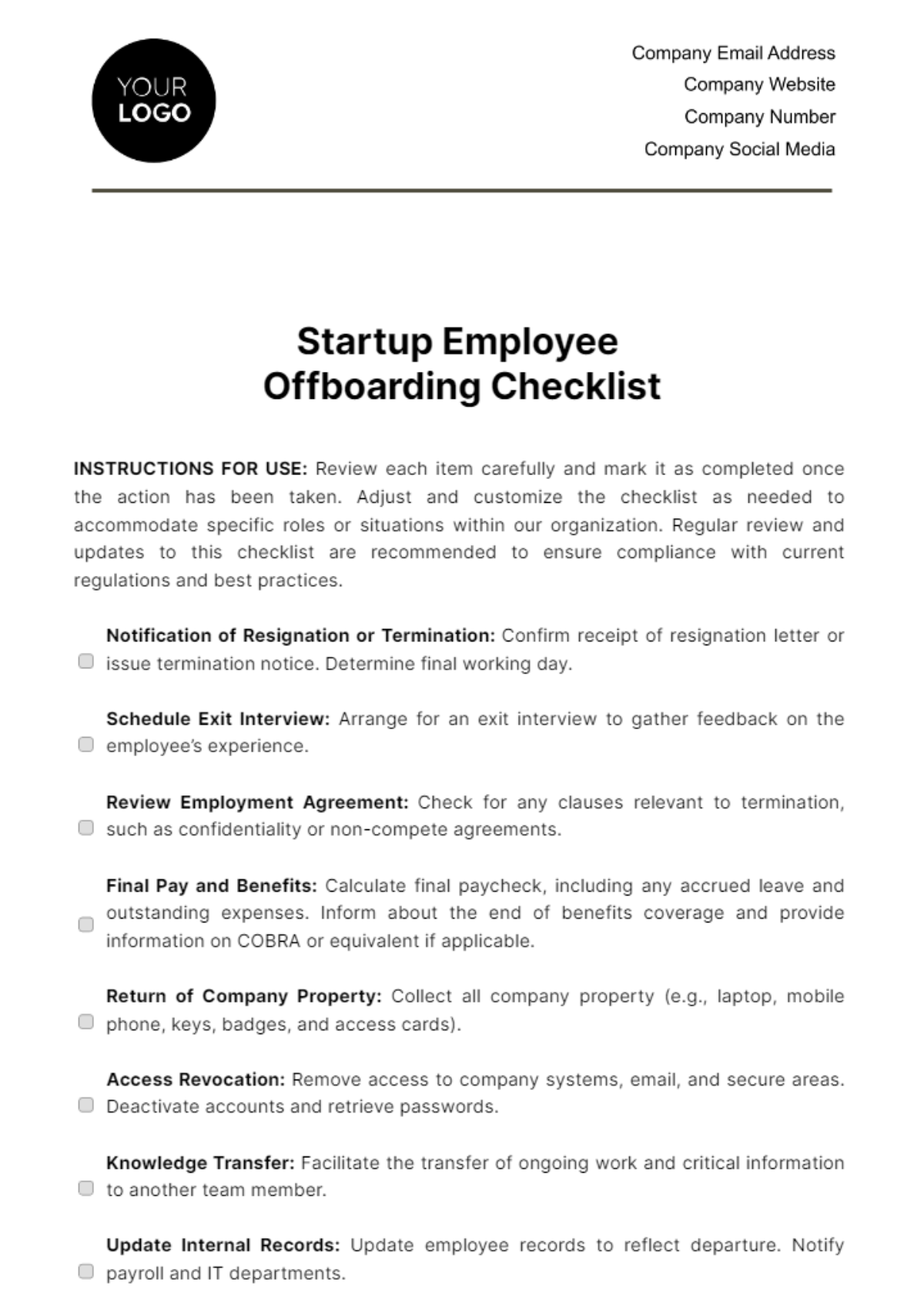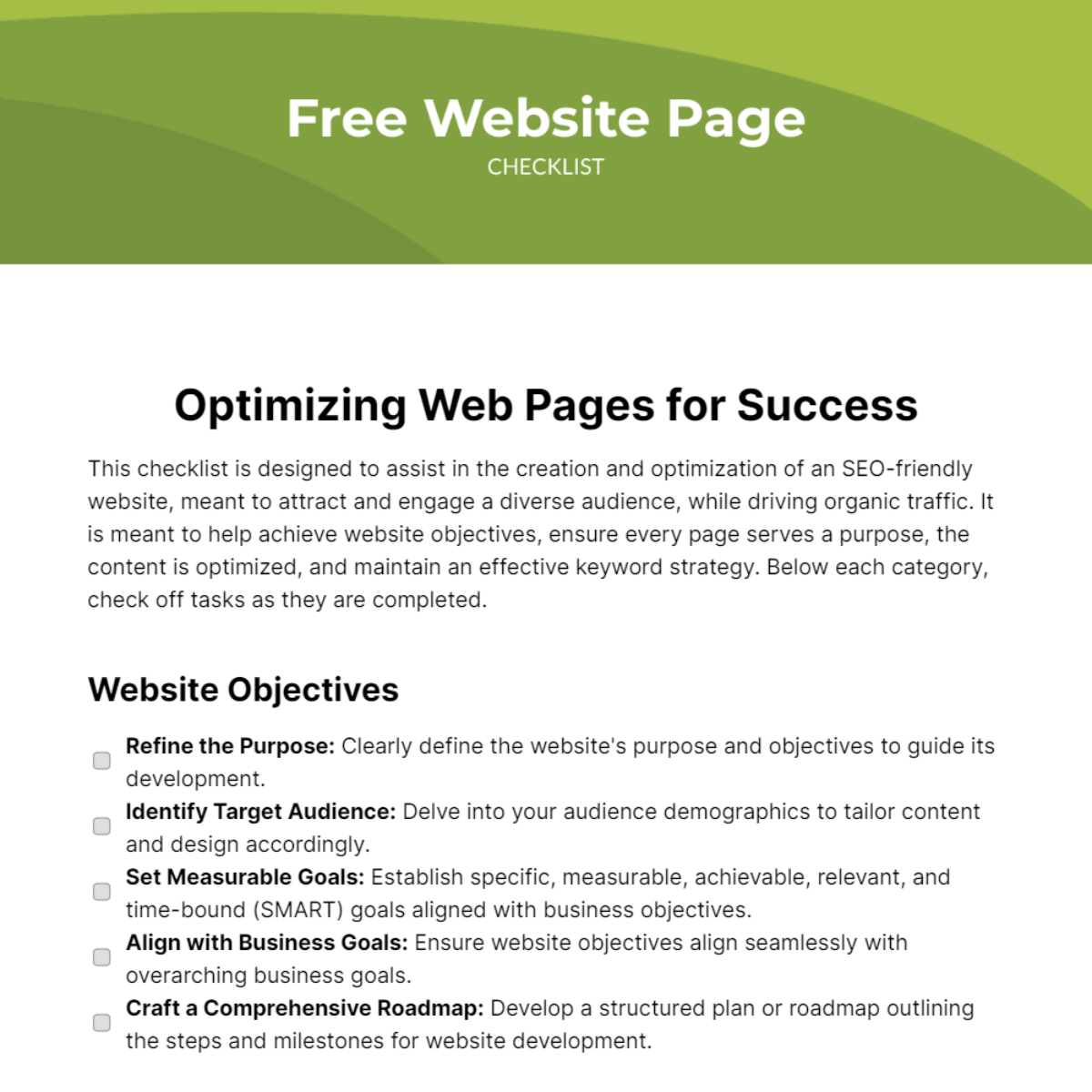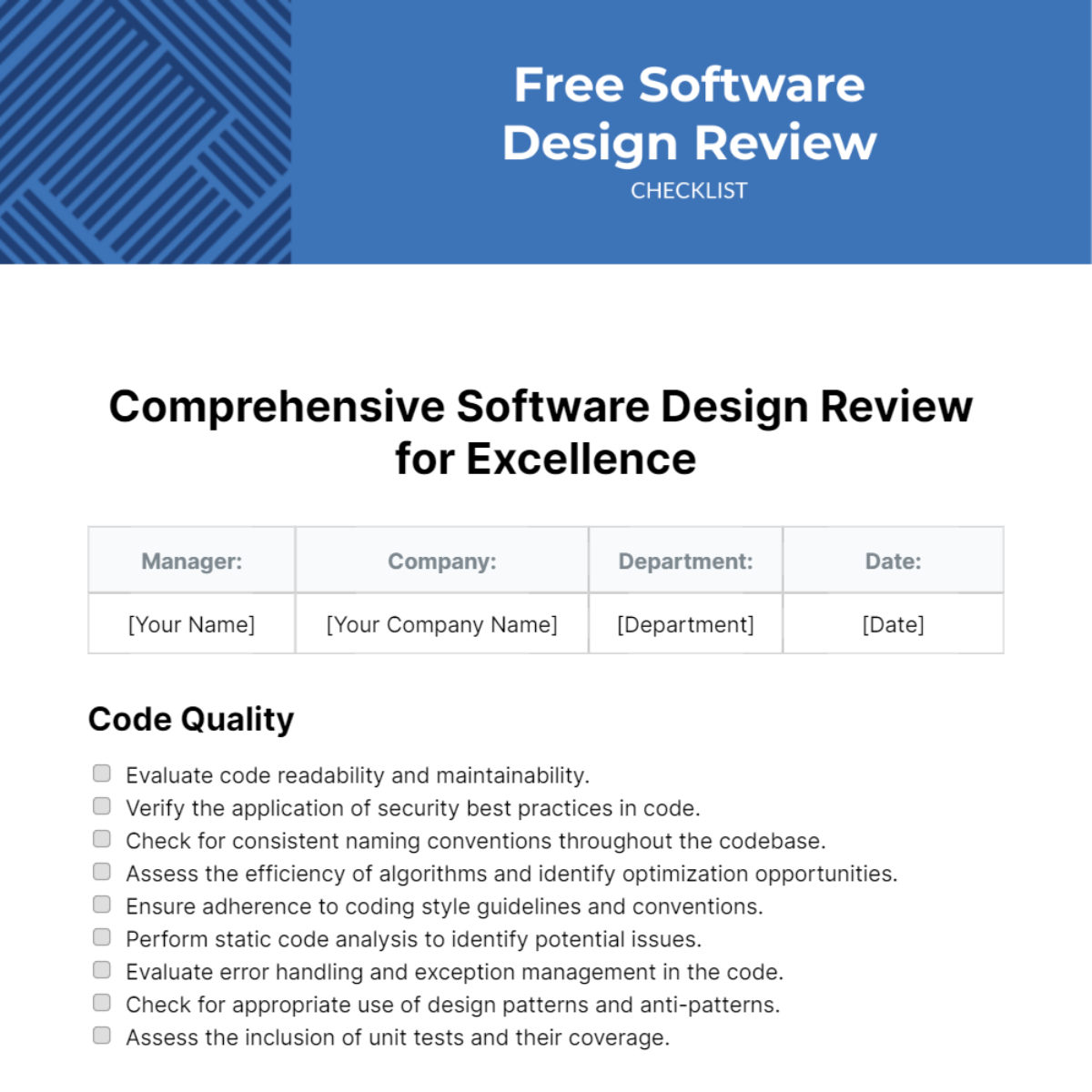QUALITY MANAGEMENT CHECKLIST OUTLINE
Developed by: [Your Name]
Document Control
Effective document control secures and updates key quality documents for authorized access, maintaining consistency and preventing outdated errors. Regularly review policies, procedures, and records to meet standards. Implement secure version control with role-based access and a formal approval and distribution process for accuracy and timely delivery.
Quality Policy and Objectives
Develop a clear quality policy and objectives aligned with the company's mission. Communicate these to all employees, ensure understanding, and aim for uniform standards. Regularly review and update objectives to stay relevant. Document the company's quality commitment and framework. Set measurable, aligned goals, and review them periodically. Ensure employee understanding through communication and training.
Process Management
Quality management controls and understands processes affecting final products or services. It involves documenting processes, setting performance metrics, and seeking improvements through regular monitoring to ensure efficiency and quality.
Key steps include:
Document Processes: Clarify by mapping critical processes.
Create Process Maps: Visualize to identify inefficiencies and improvements.
Set Performance Metrics: Establish KPIs for process efficiency and quality.
Monitor Performance: Regularly track and review for expected outcomes.
Find Improvements: Continuously evaluate for better efficiency and effectiveness.
Product Quality Assurance
Regularly conduct product quality audits to ensure compliance with predefined standards. Promptly address issues found during audits by adjusting processes, retraining staff, or altering materials or suppliers. Keep detailed records of audit results and actions taken, and continuously review corrective measures to ensure issues are resolved and process changes are effective.
Continuous Improvement
Continuous improvement is key in quality management: regularly review processes, documents, and products to enhance them. Foster a culture of feedback and employee involvement. Update checklists to meet regulations and goals. Use data, audits, and feedback to find and implement improvements, monitoring their impact.
Reminder: Quality management is an ongoing process that involves constant monitoring, feedback, and improvement. Regularly assess your quality management system to ensure it remains effective and aligned with the company’s goals.
